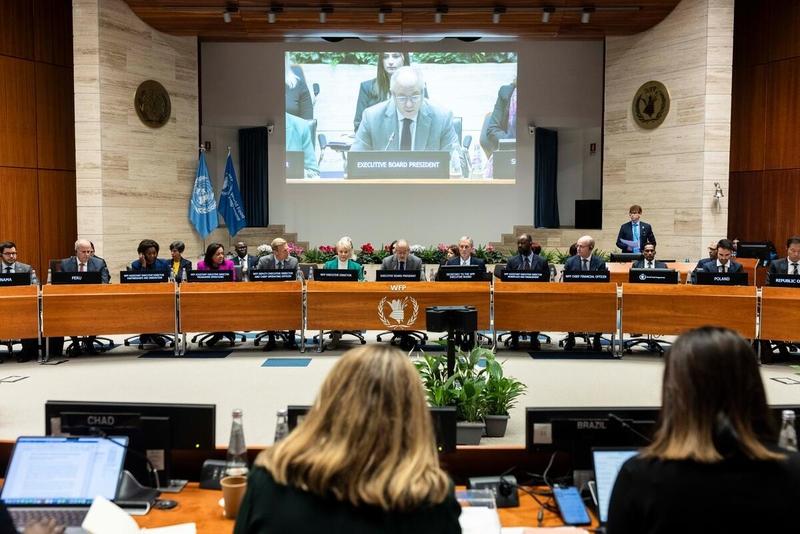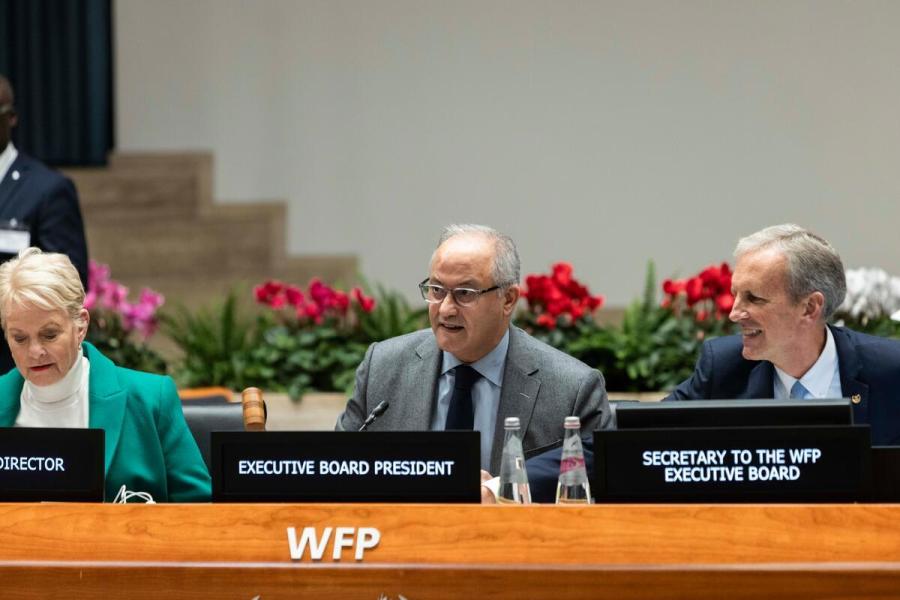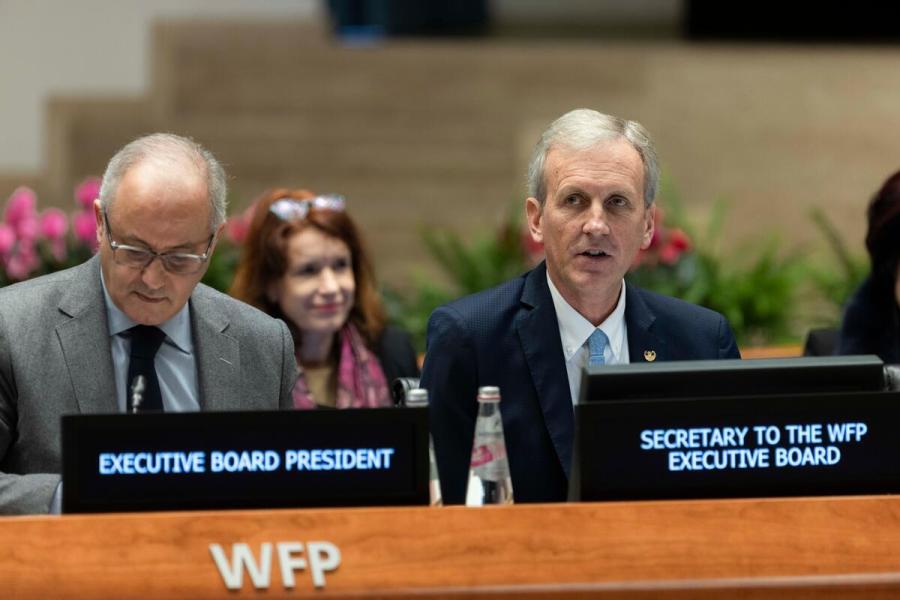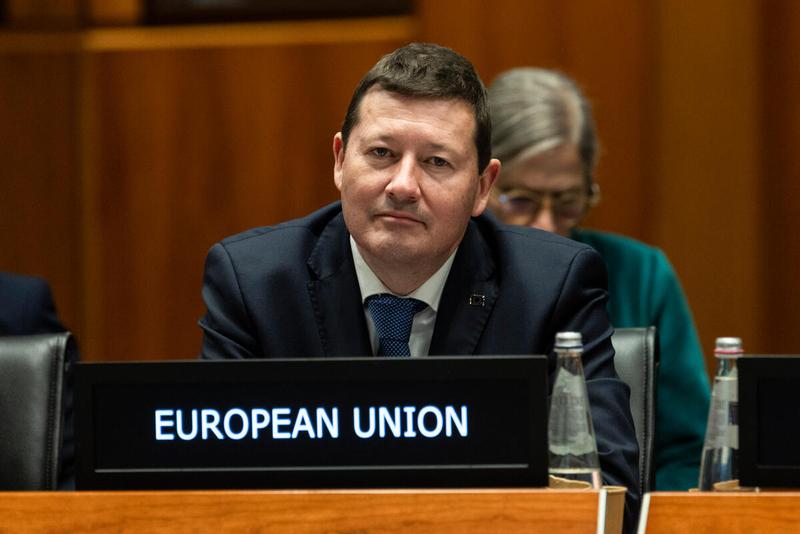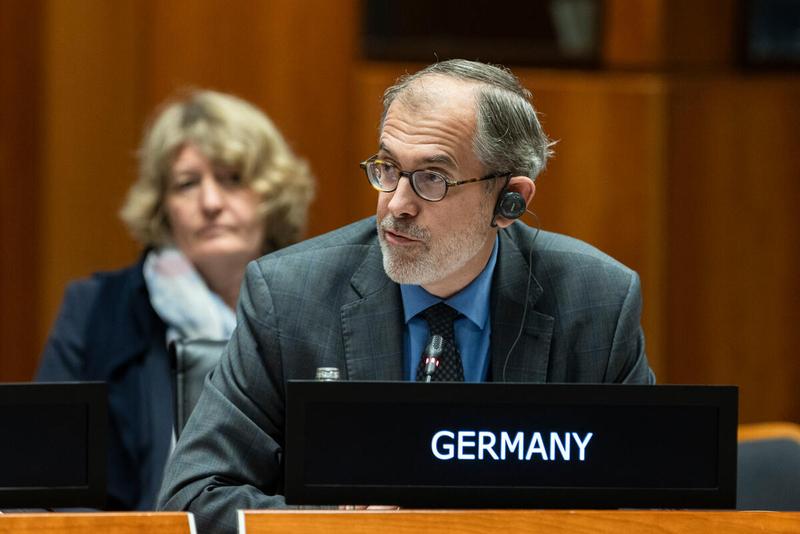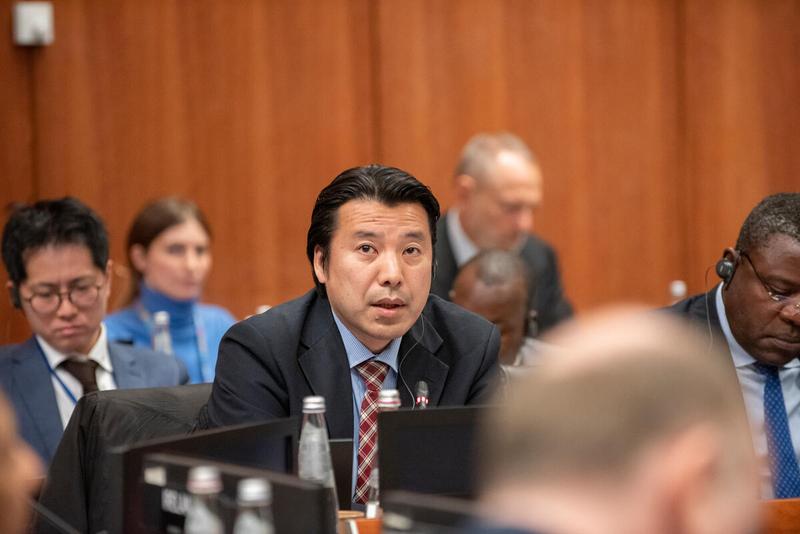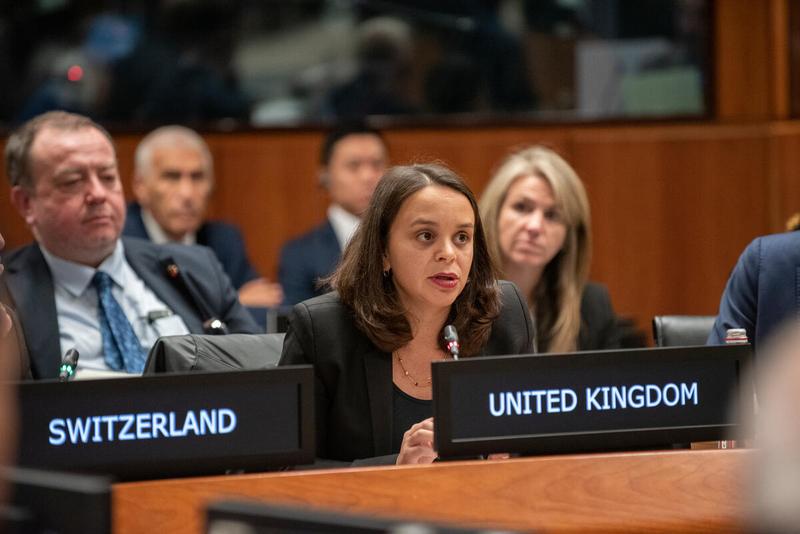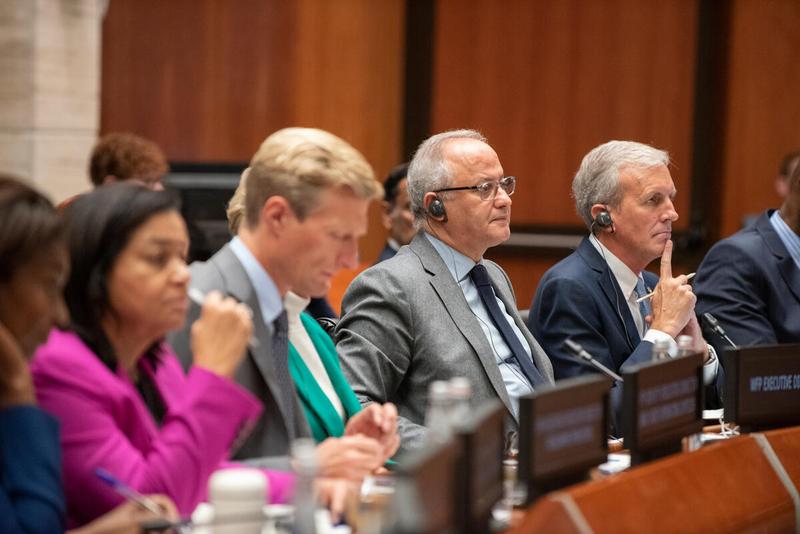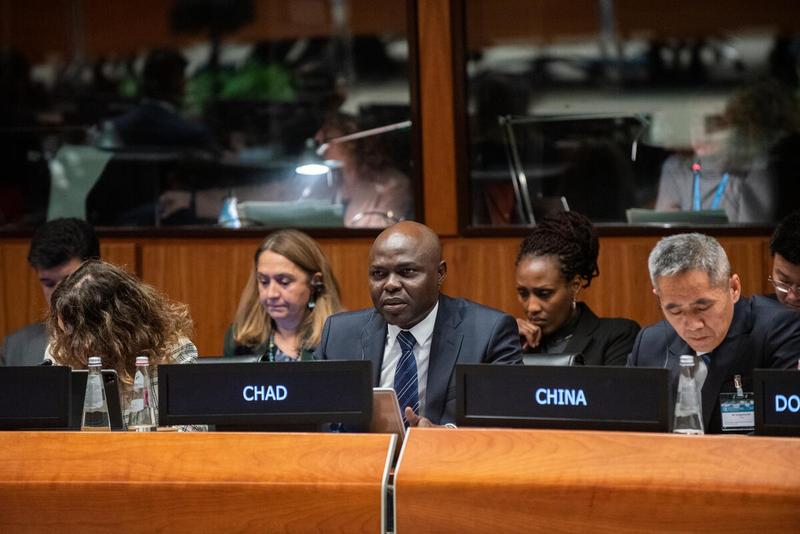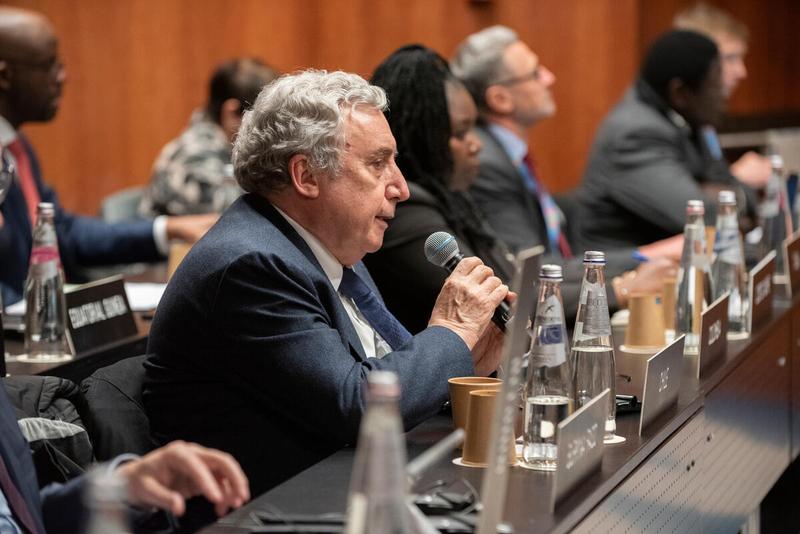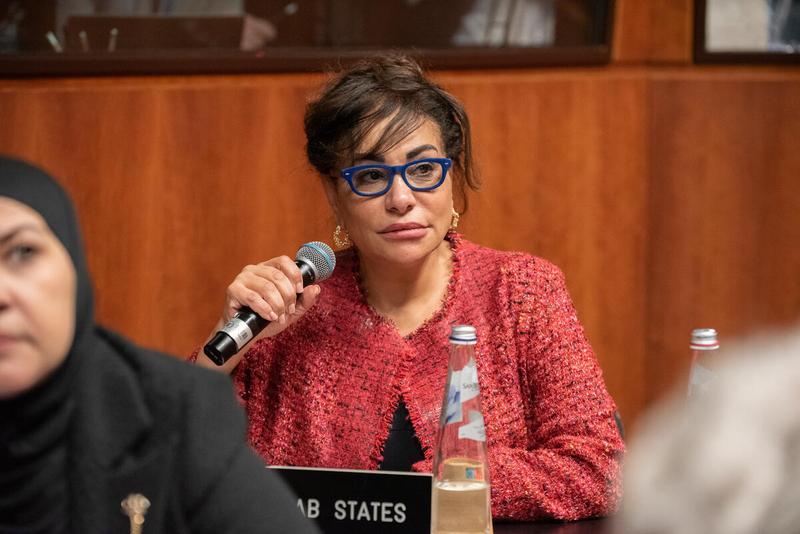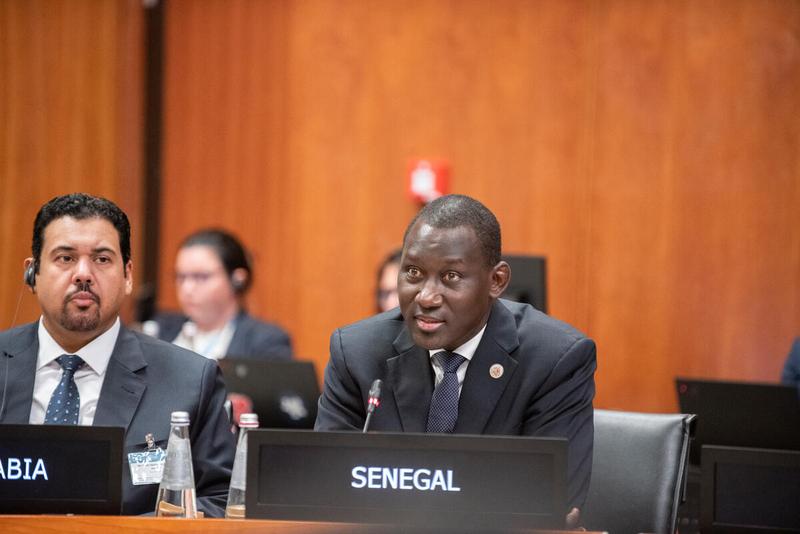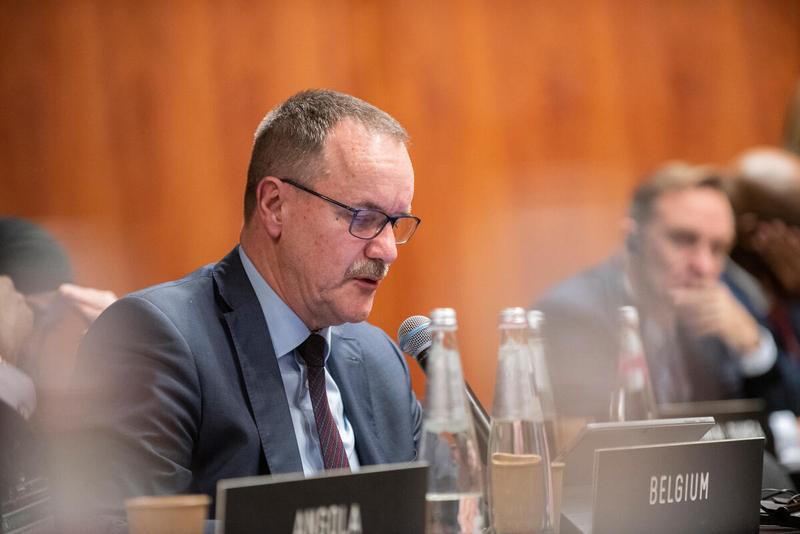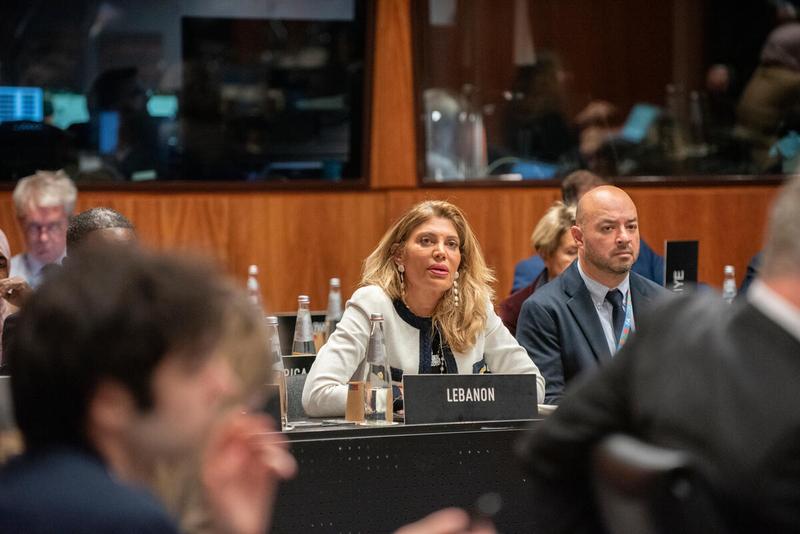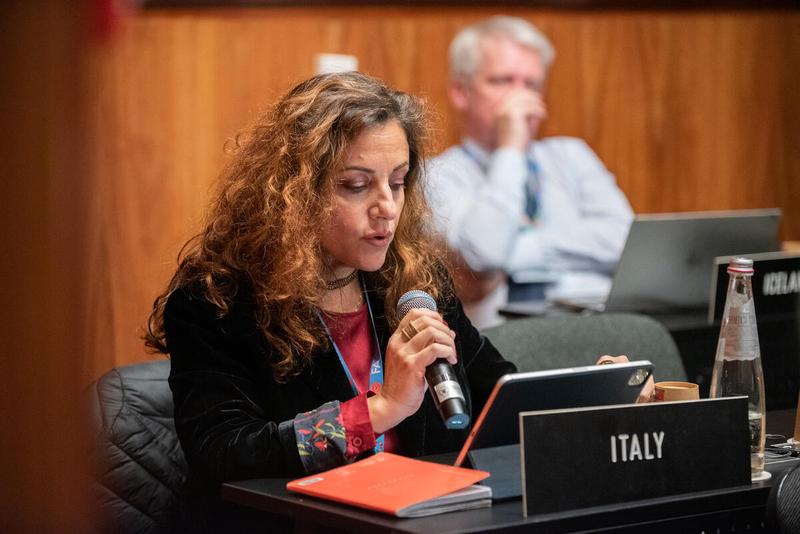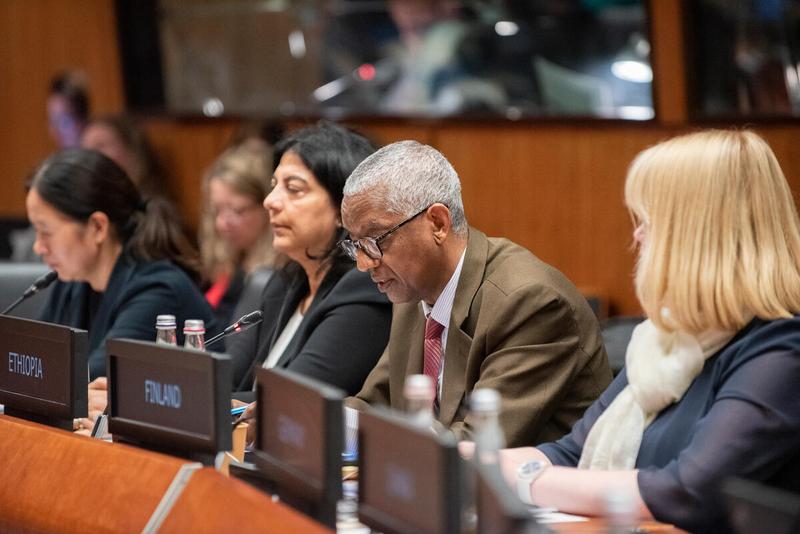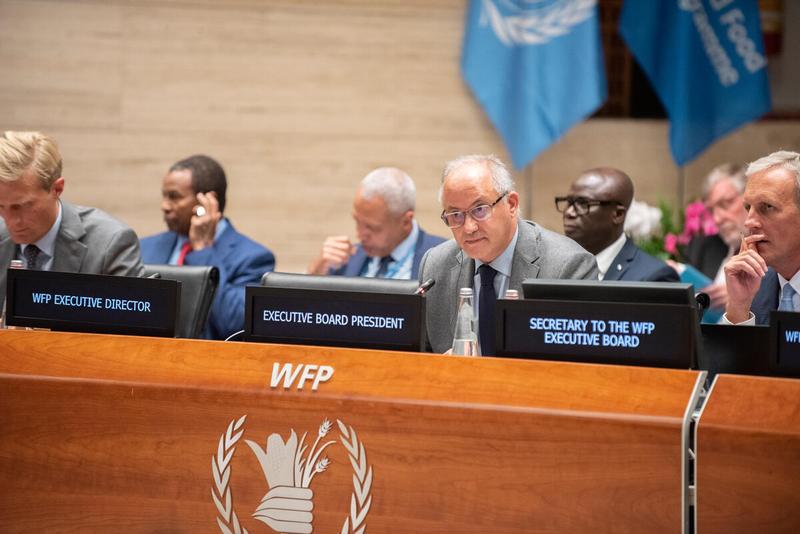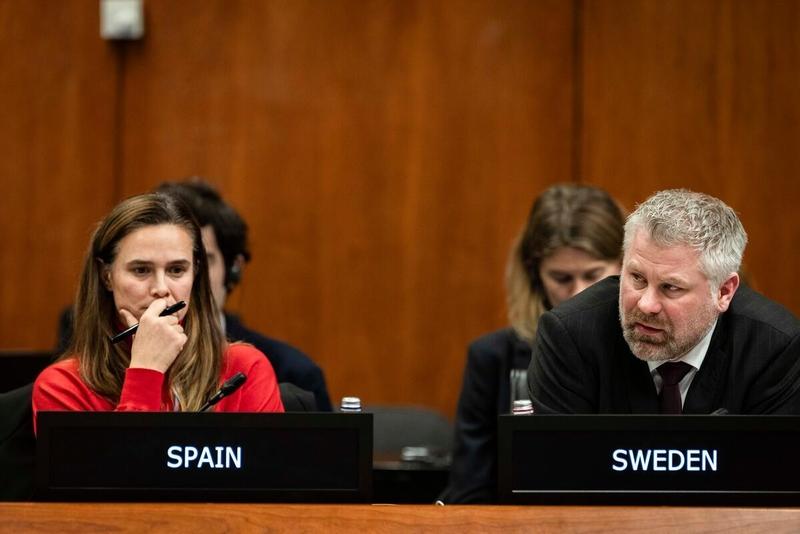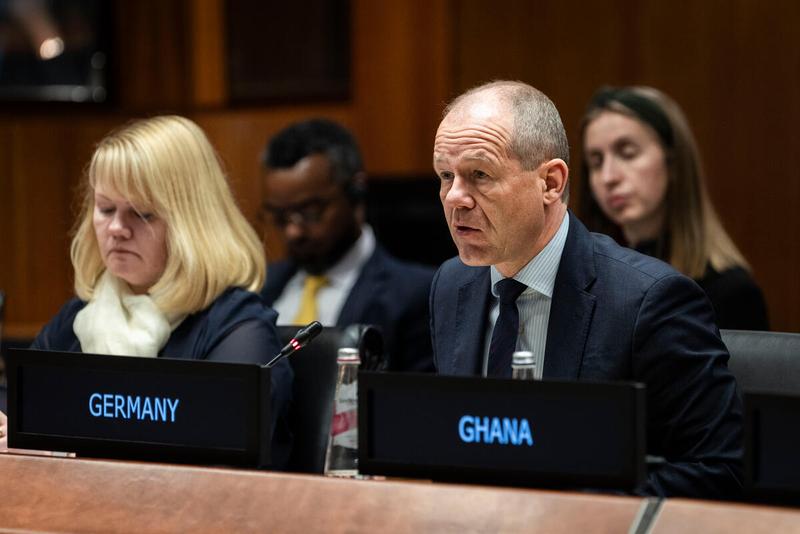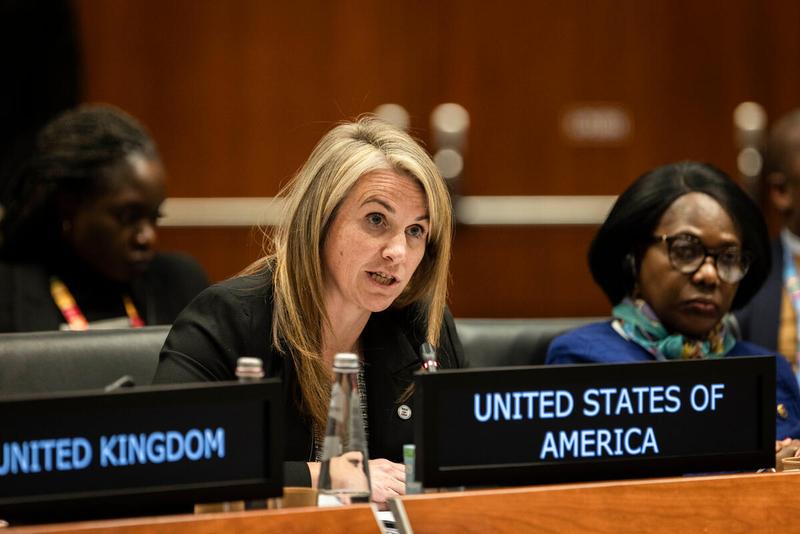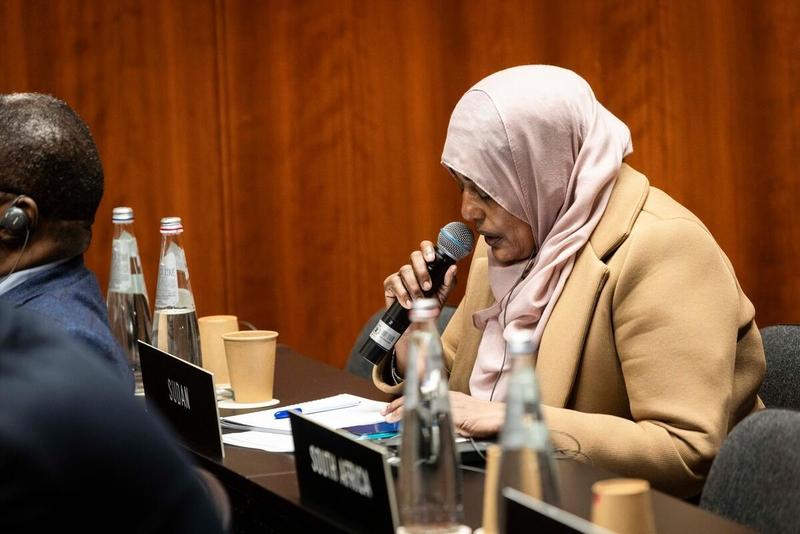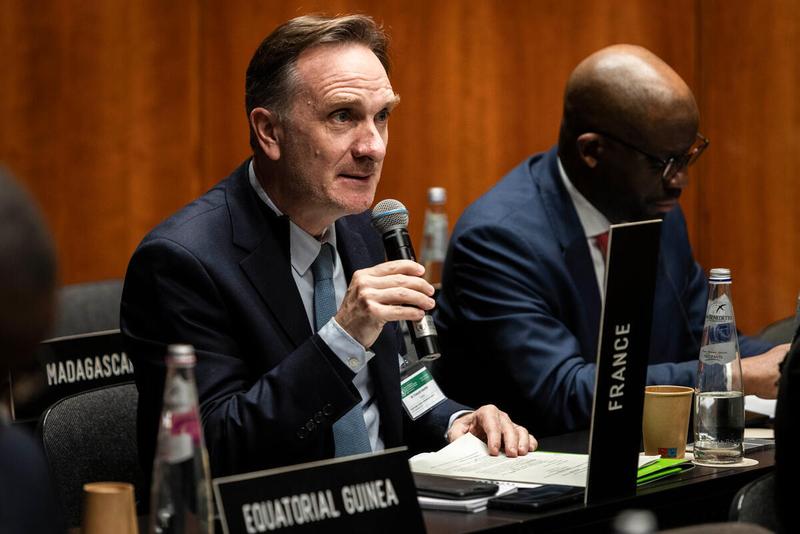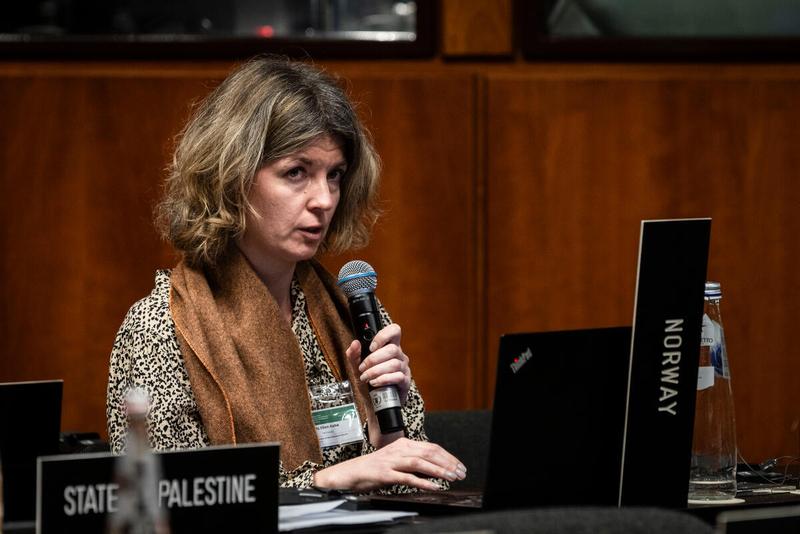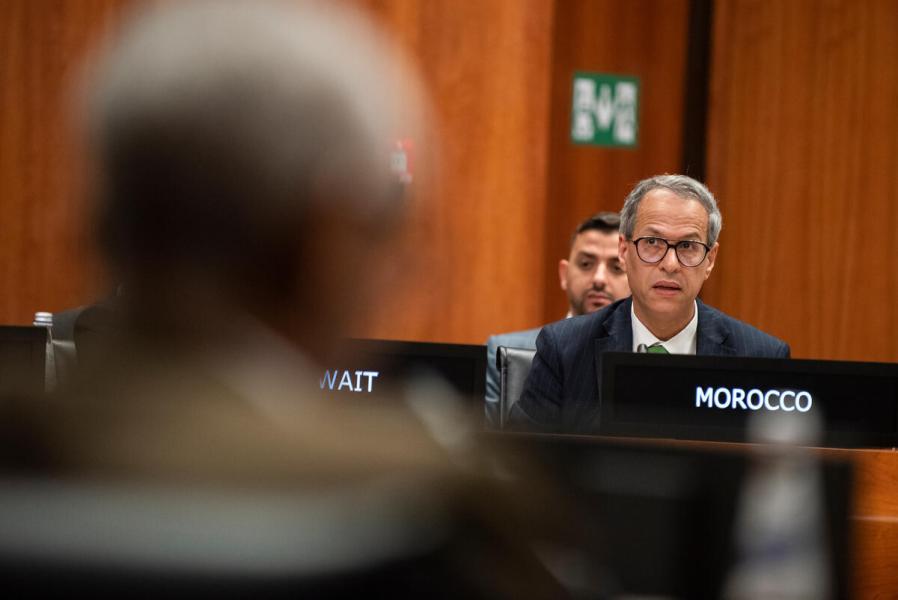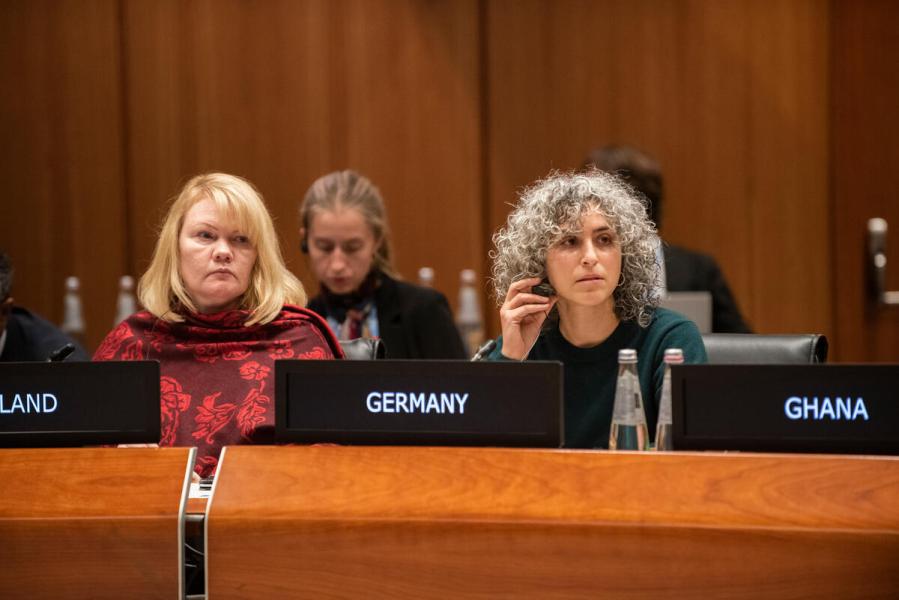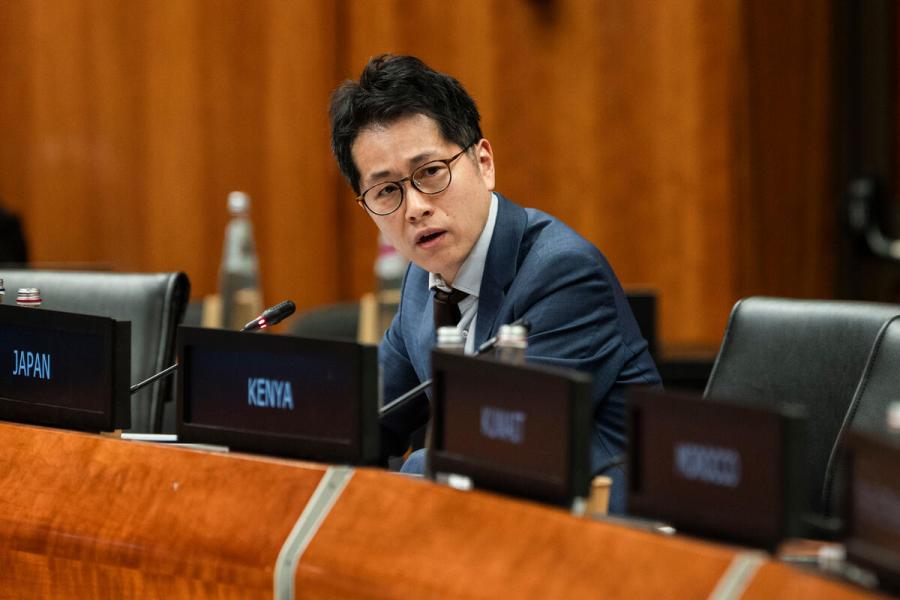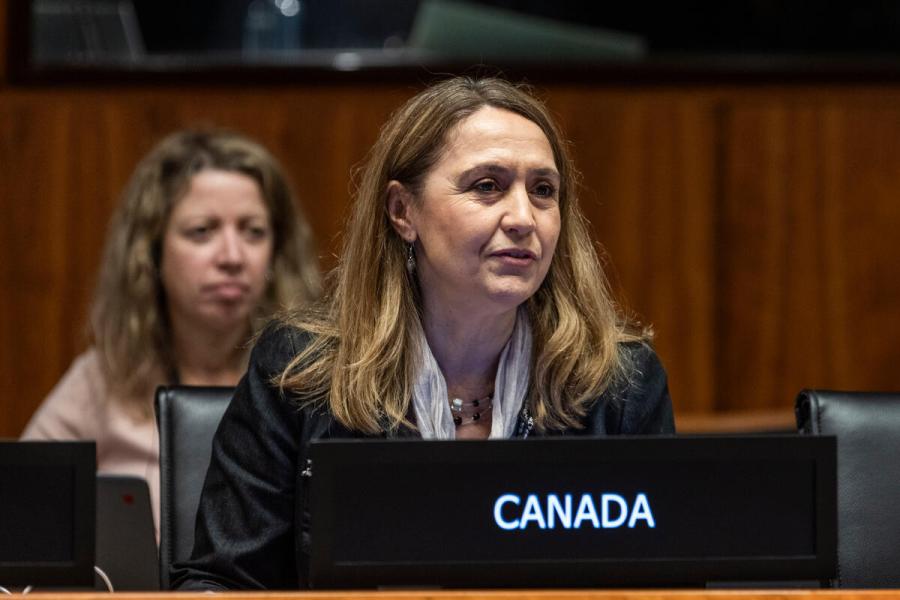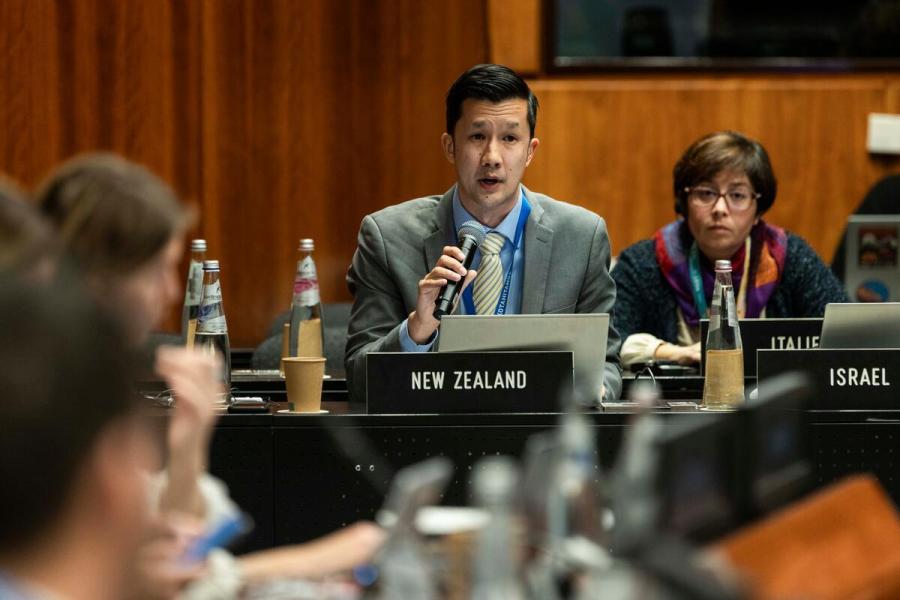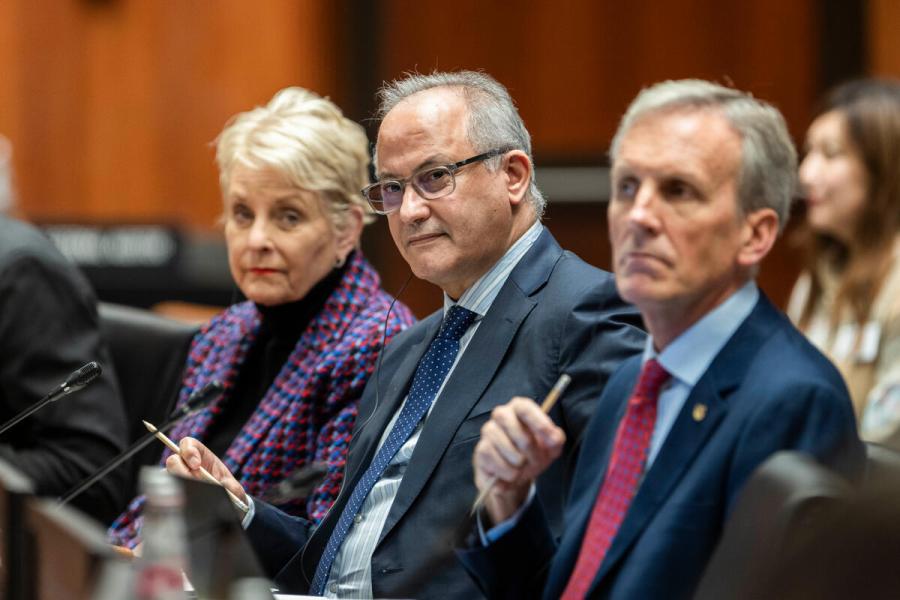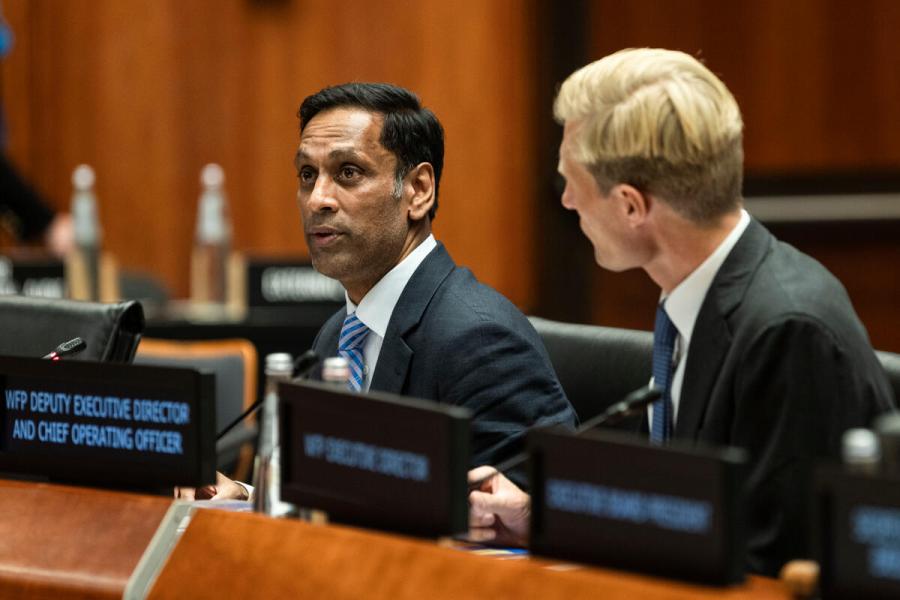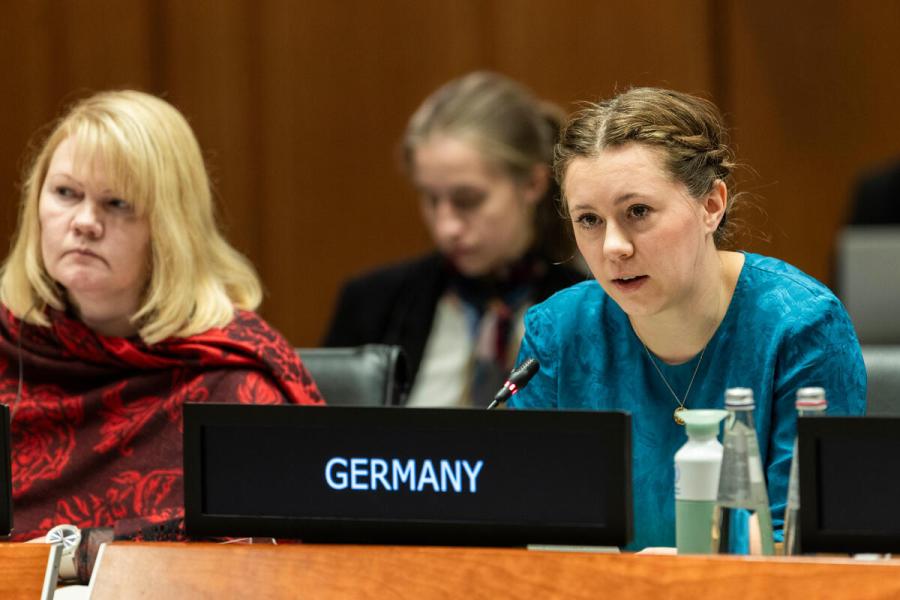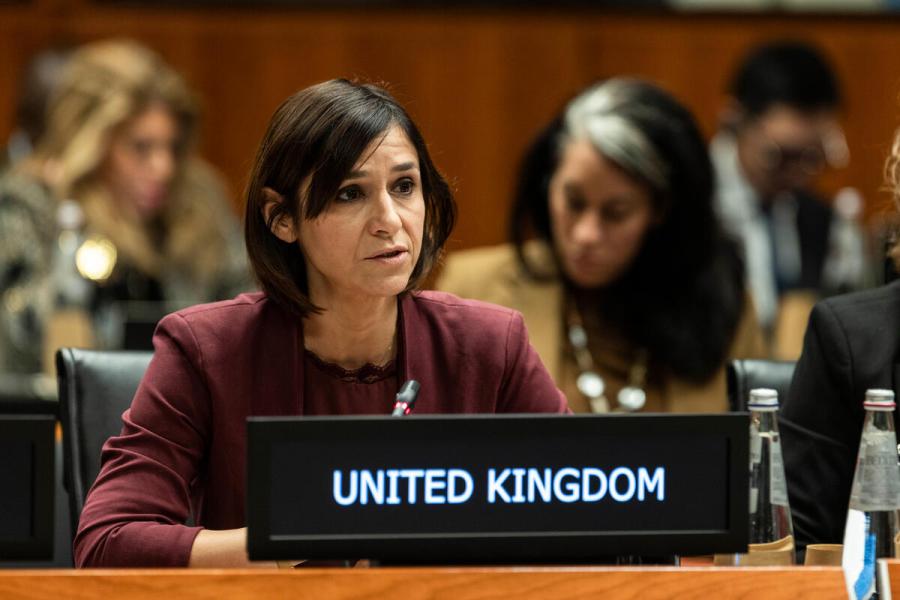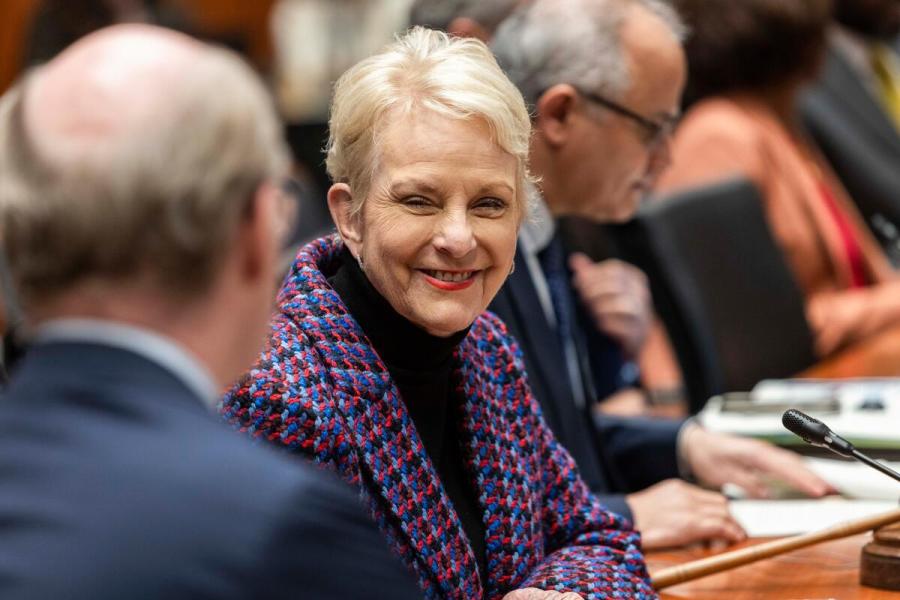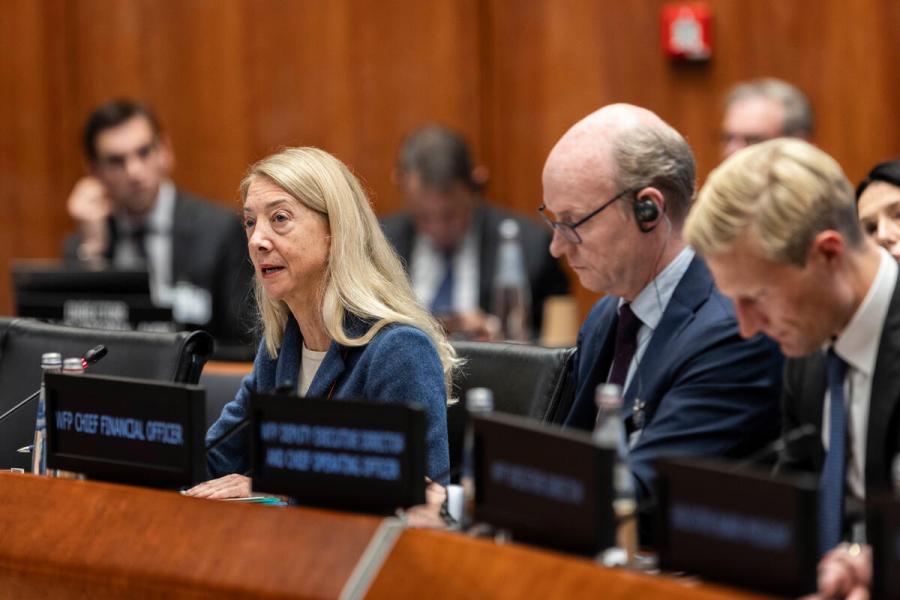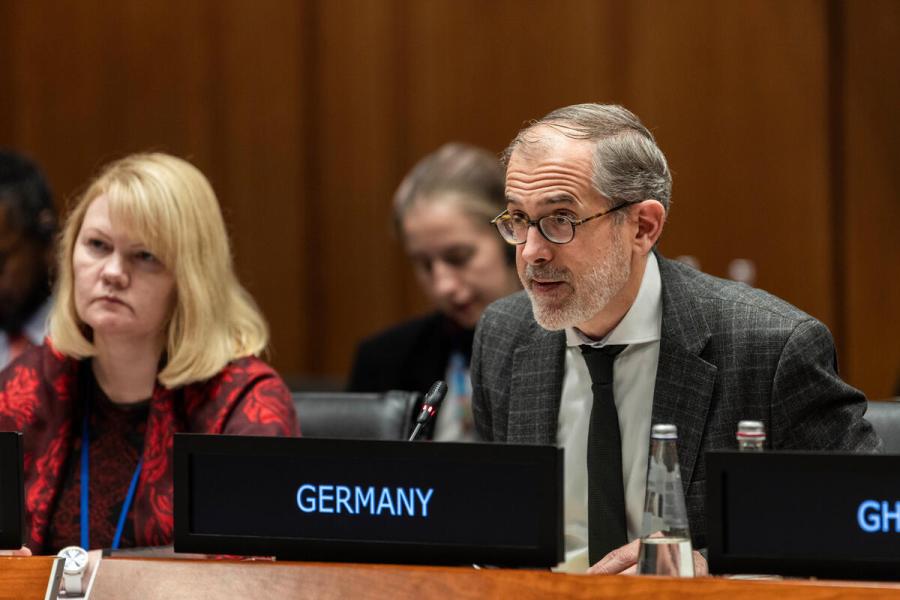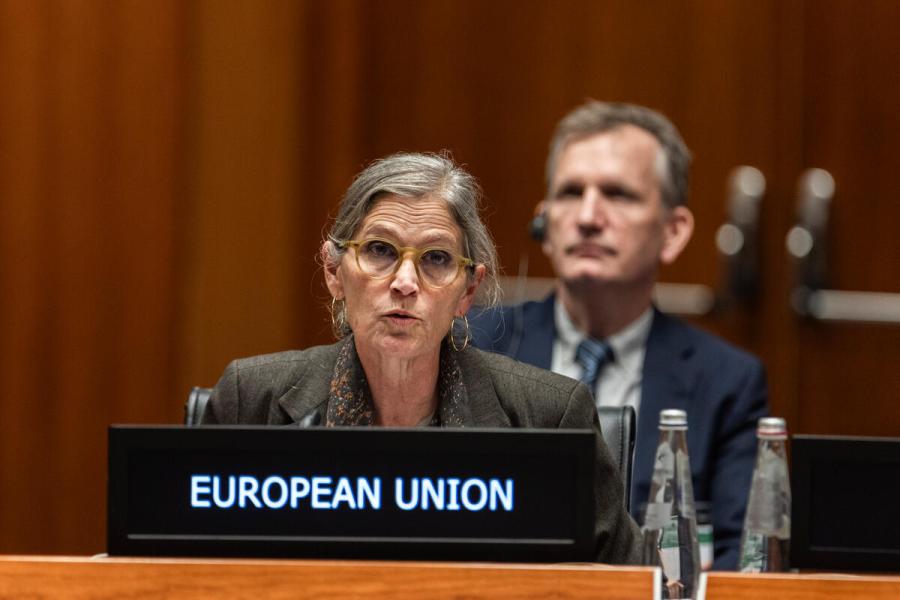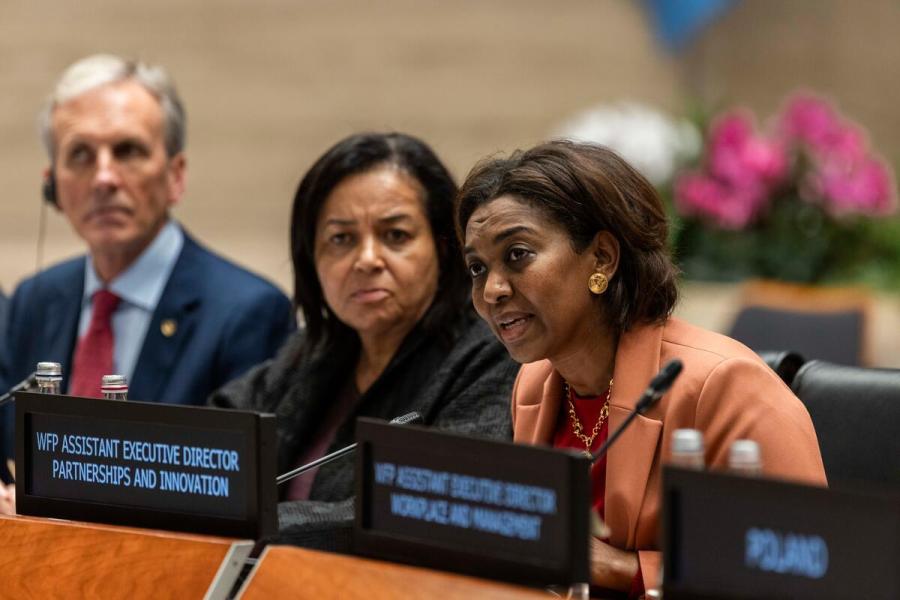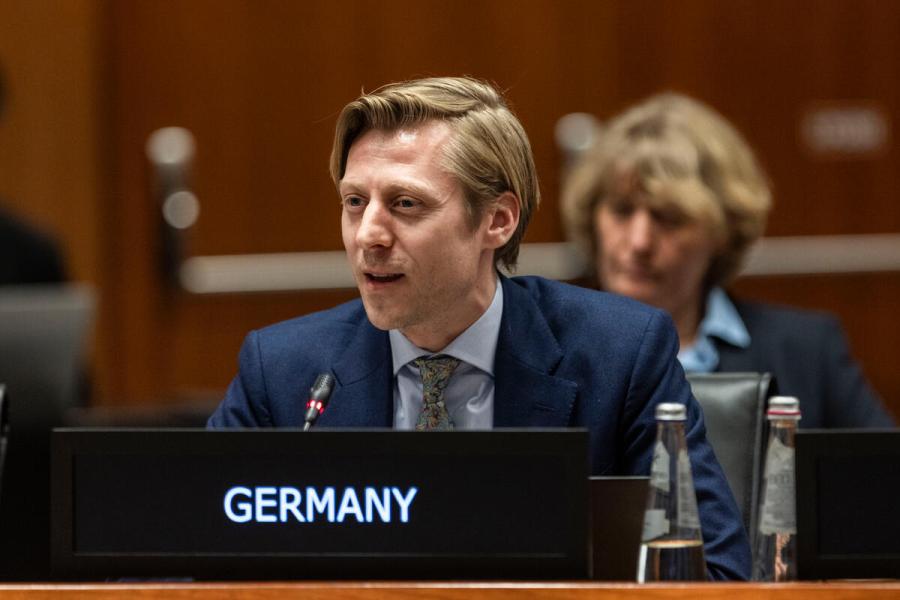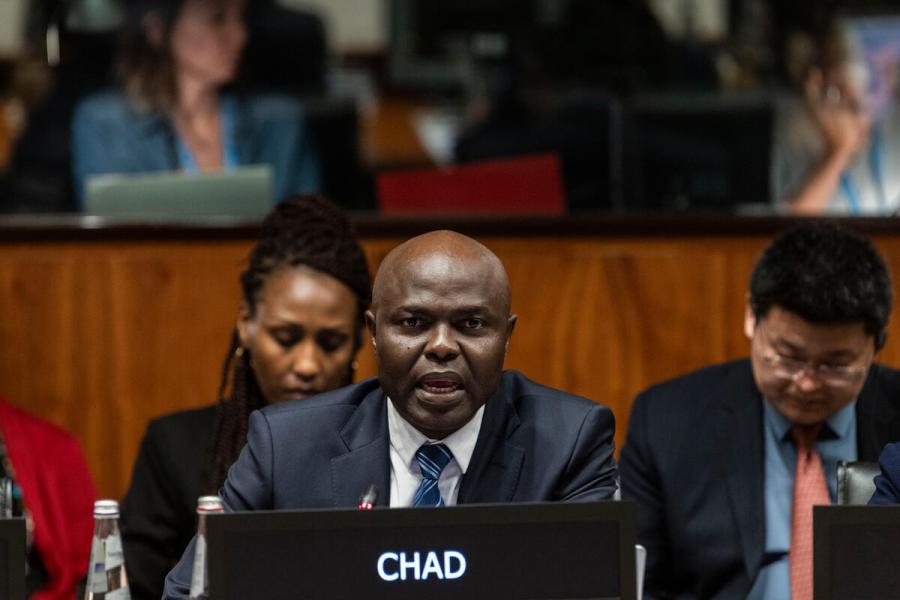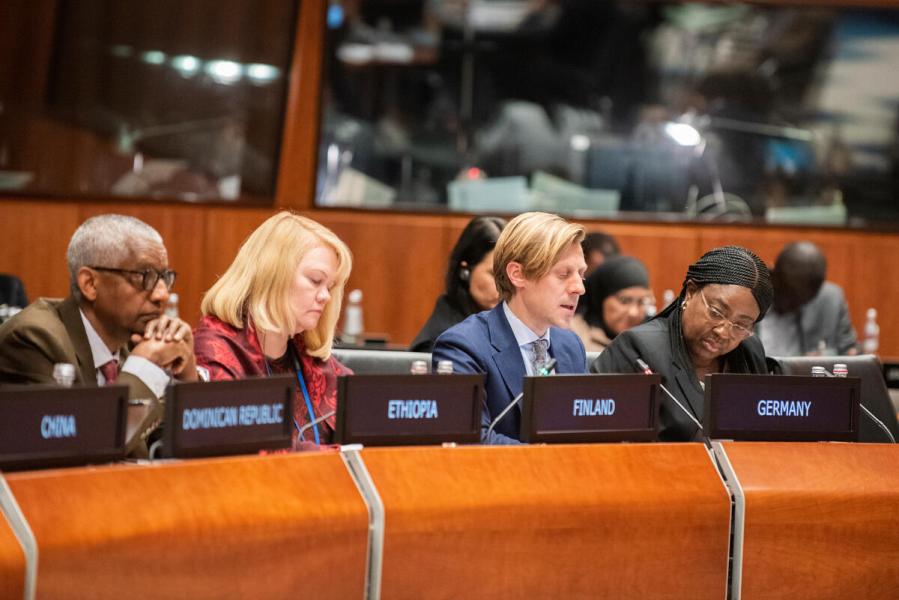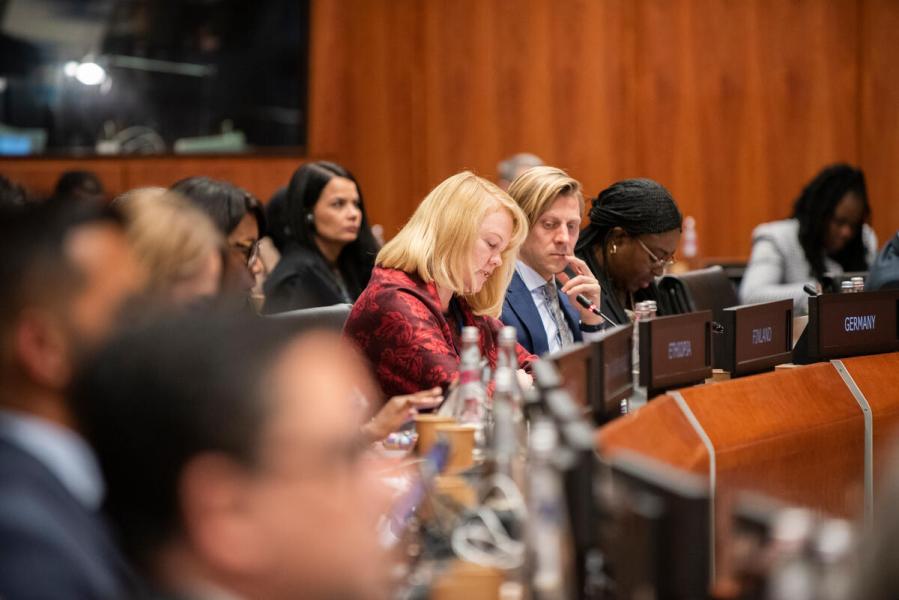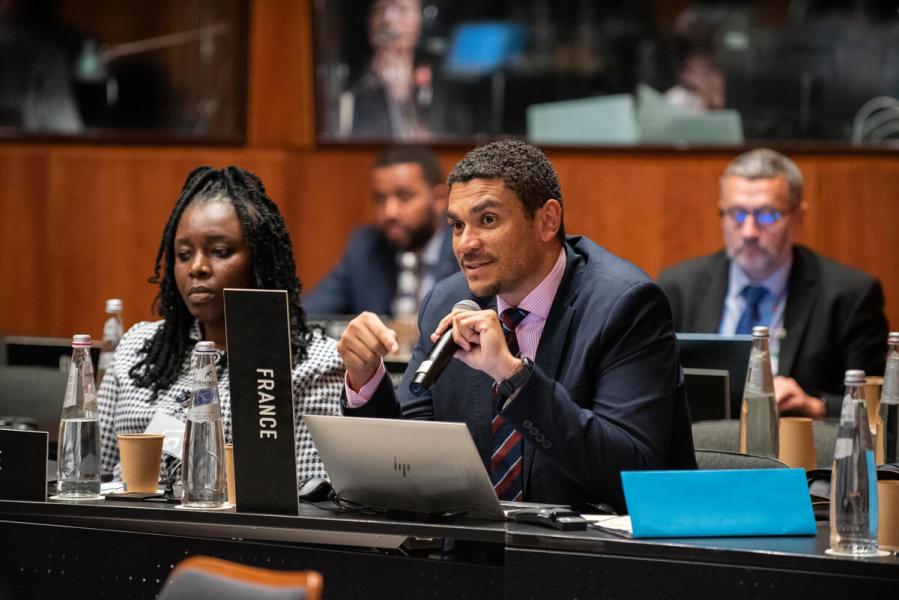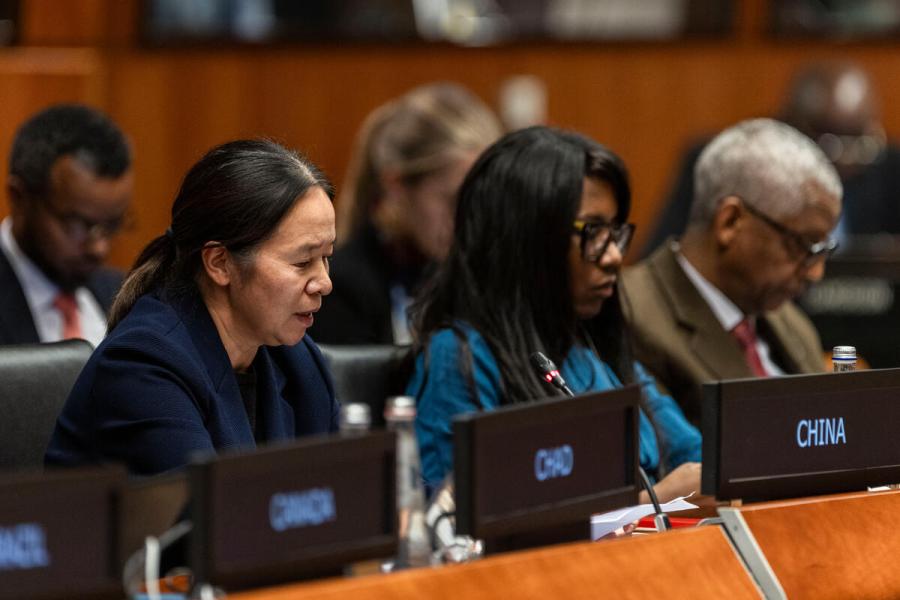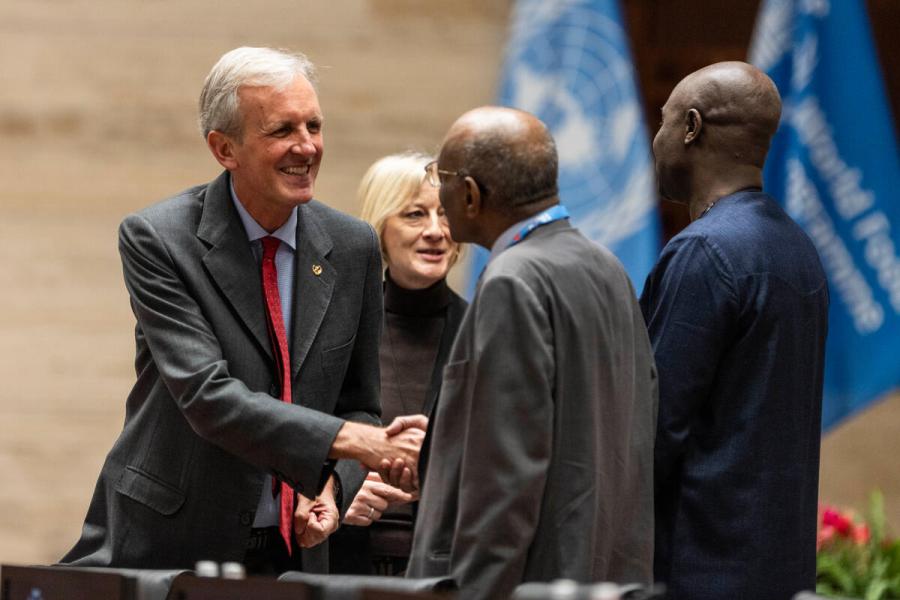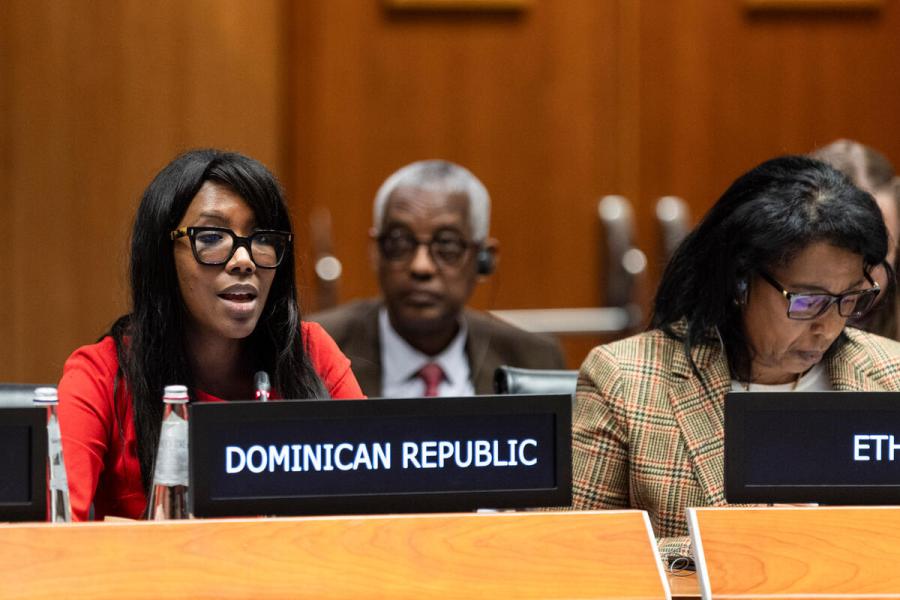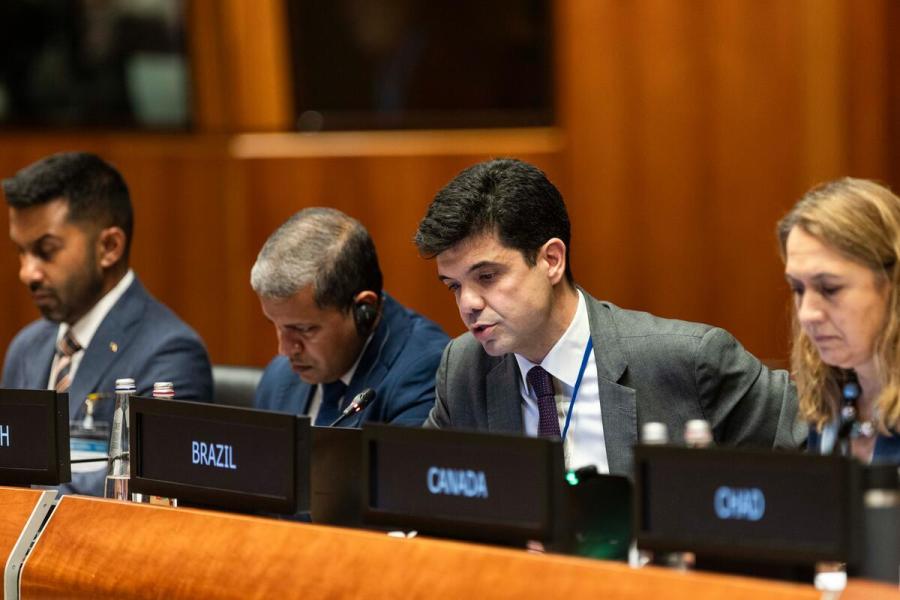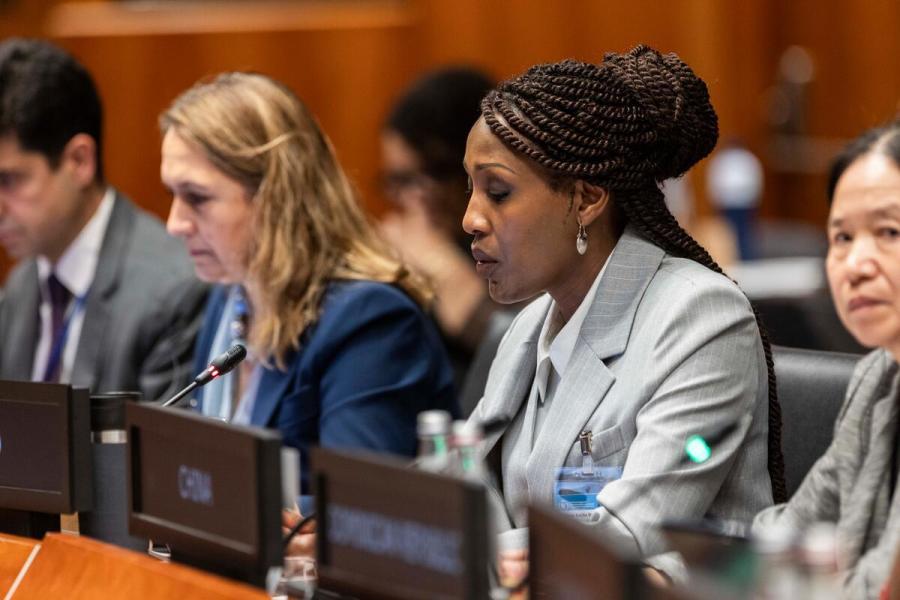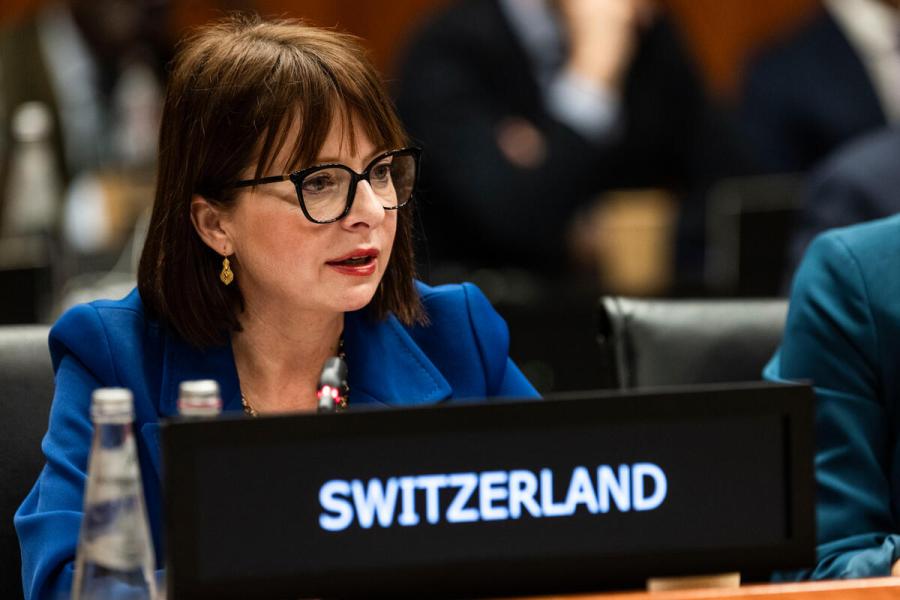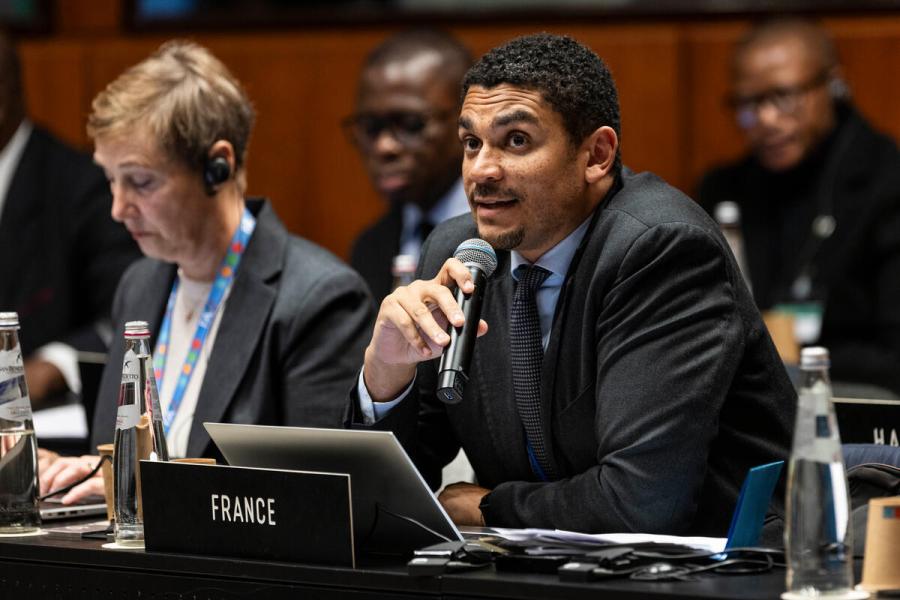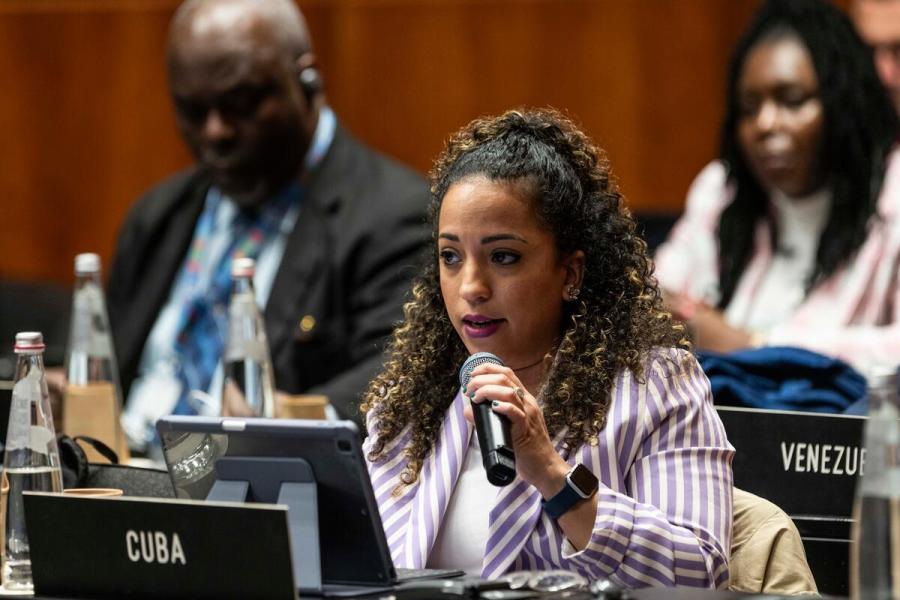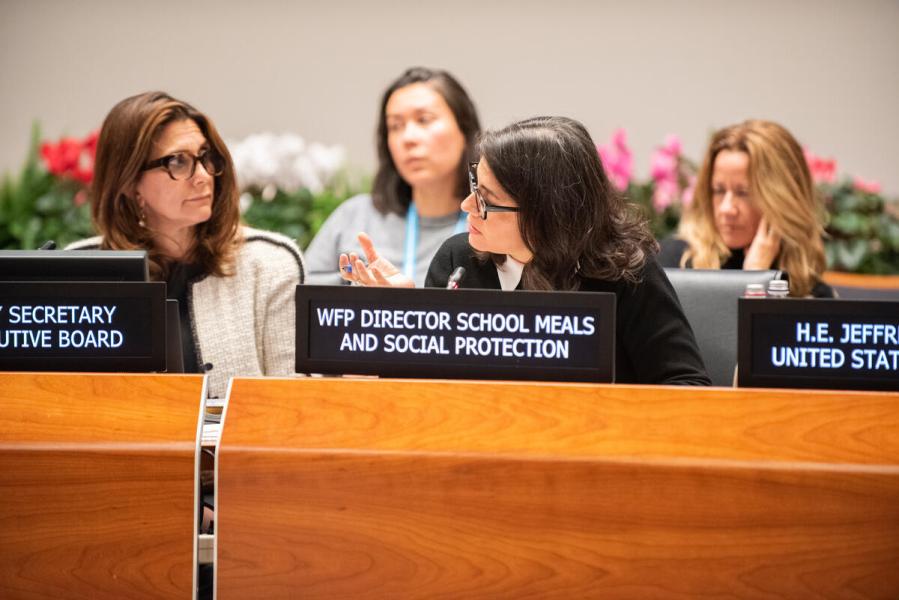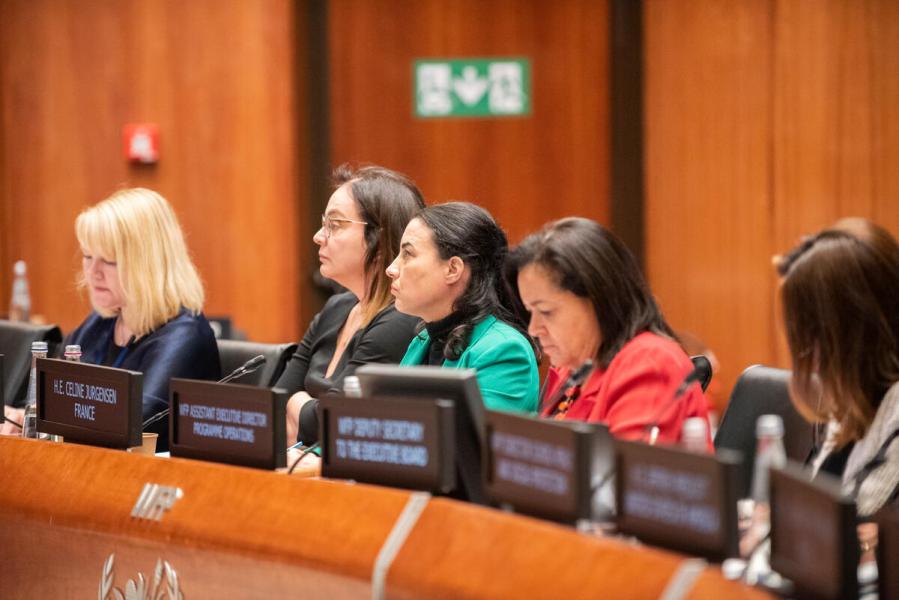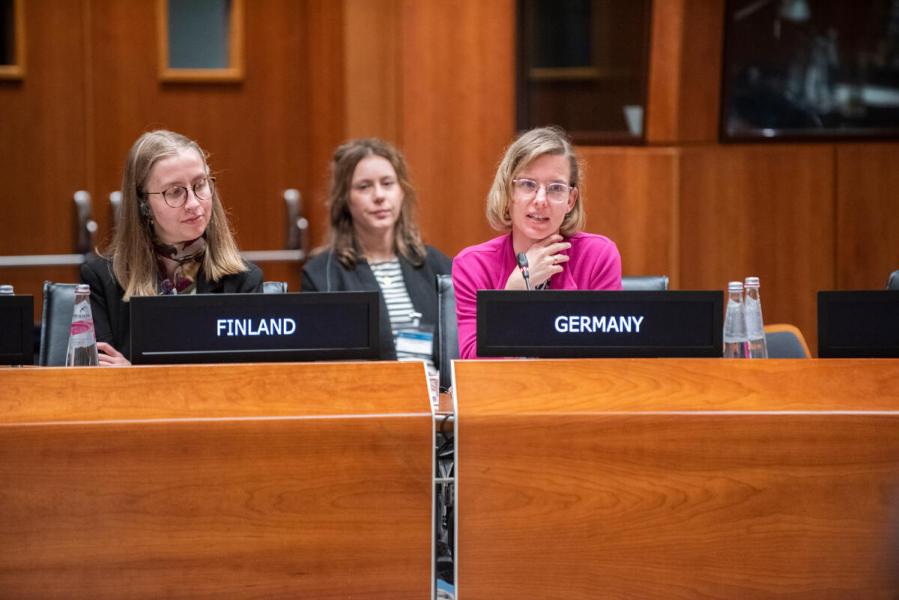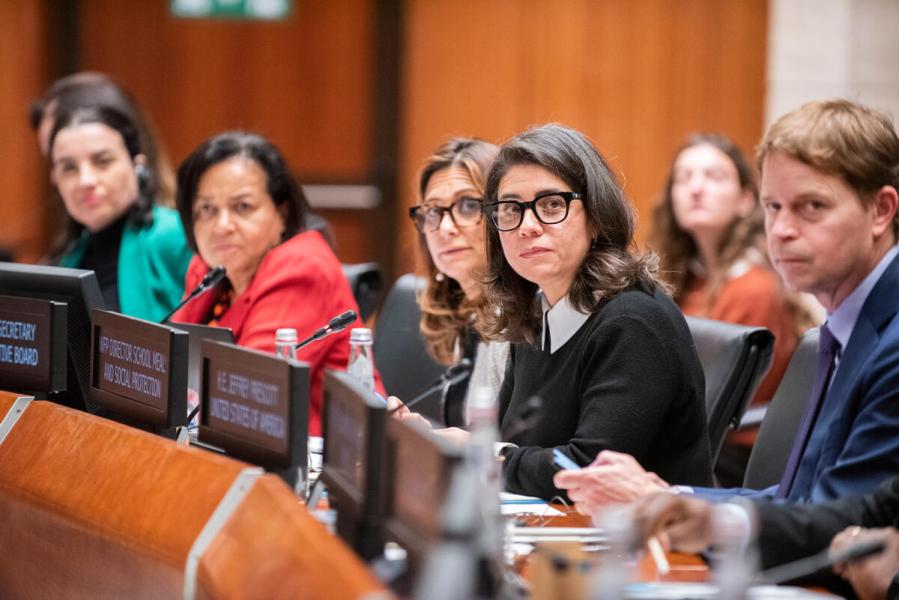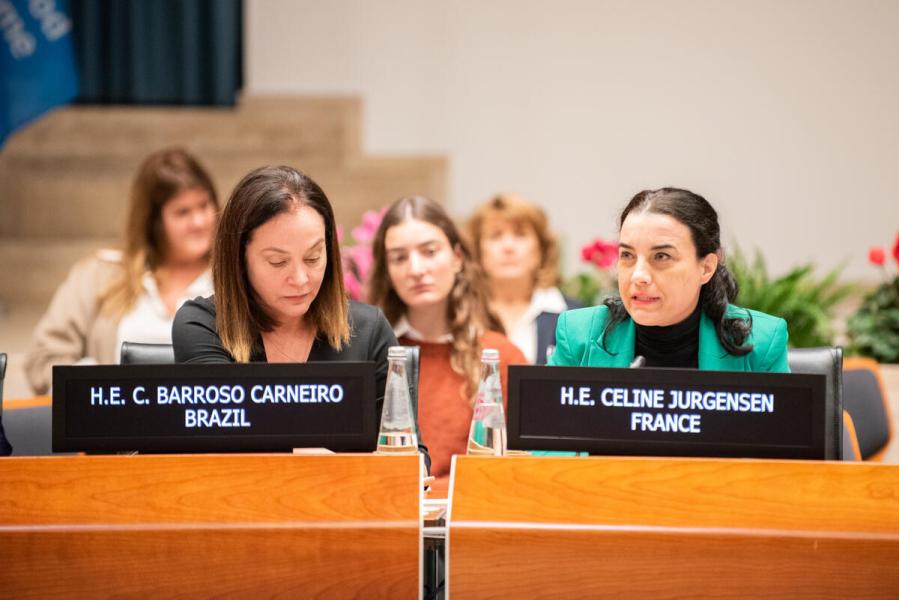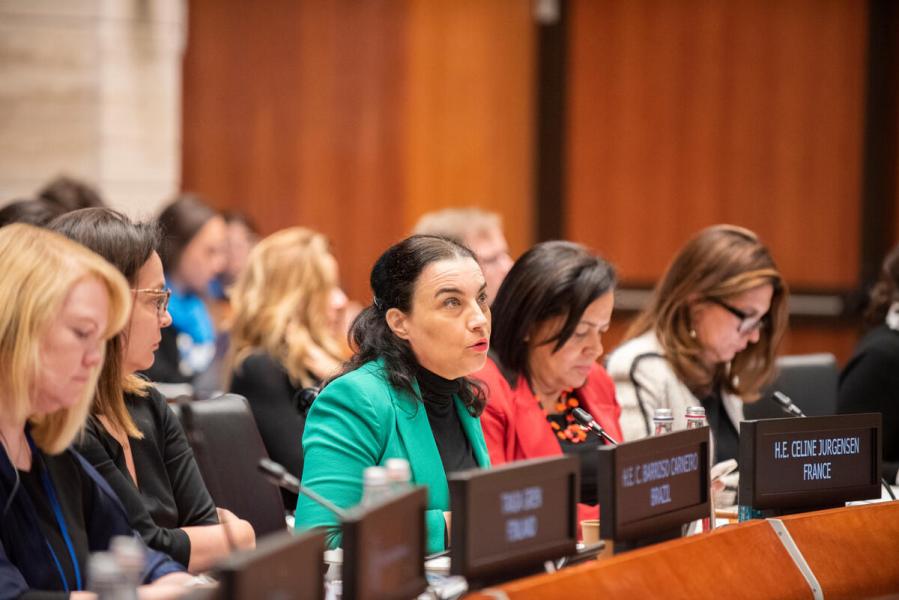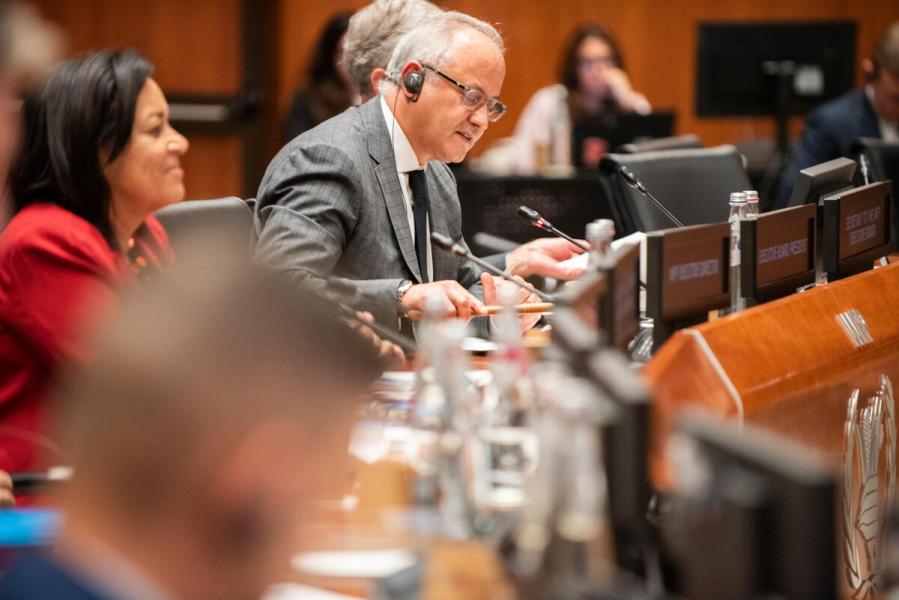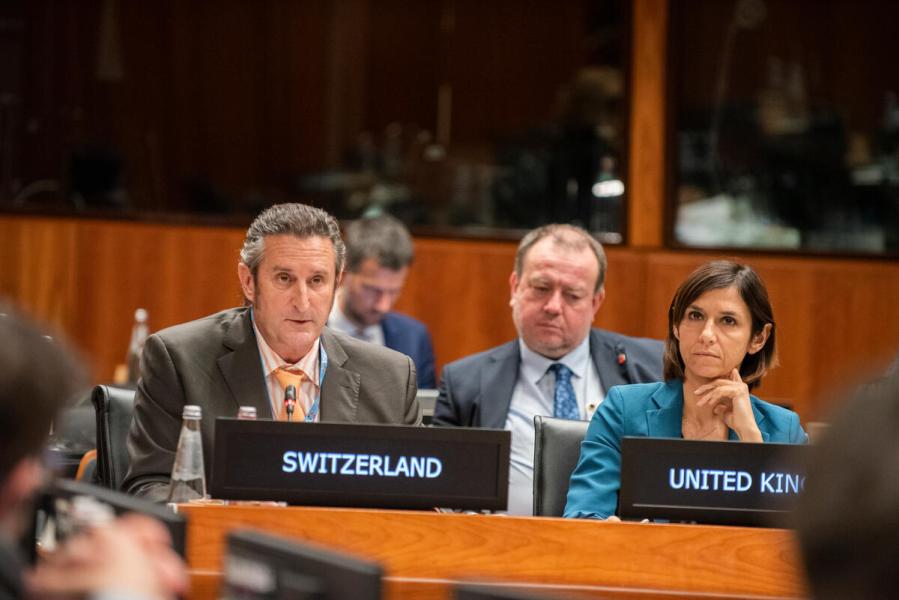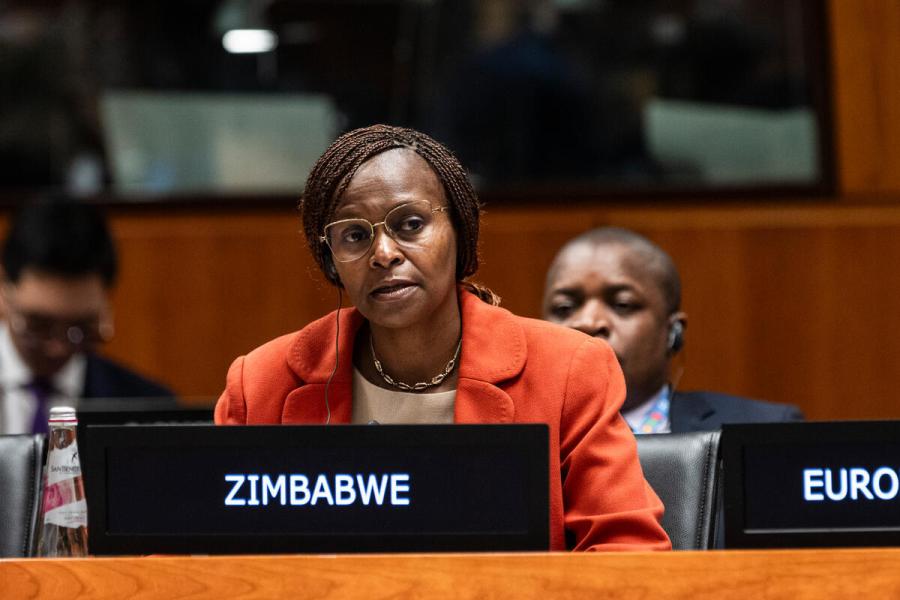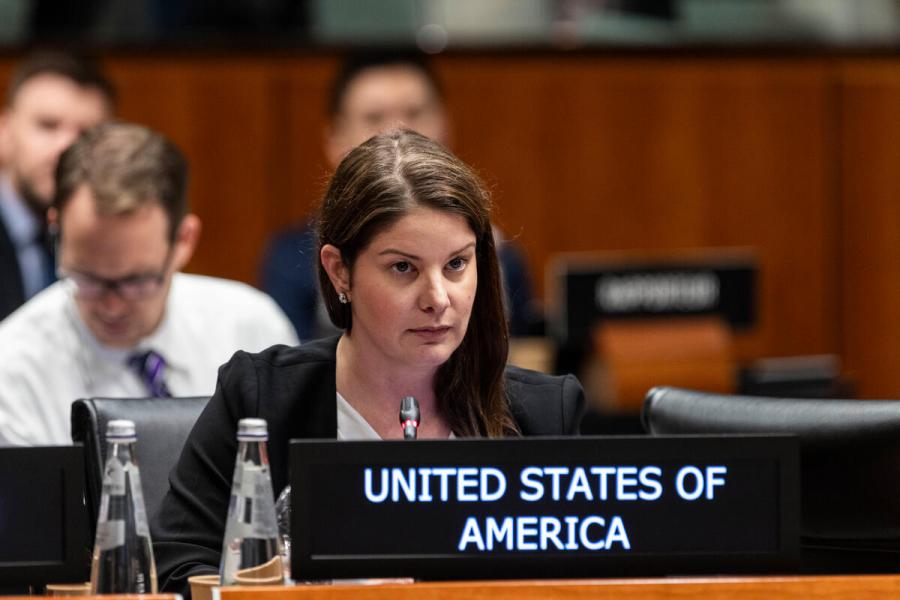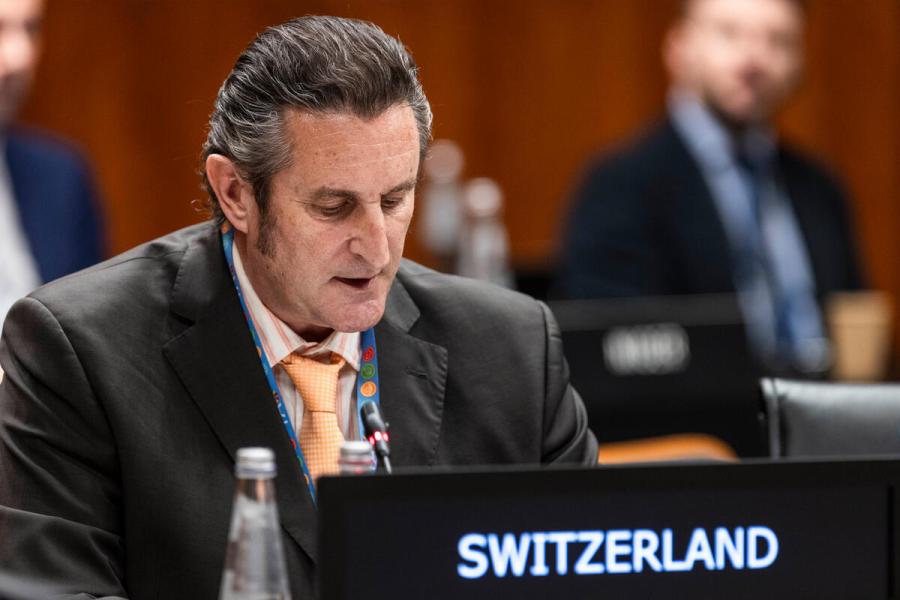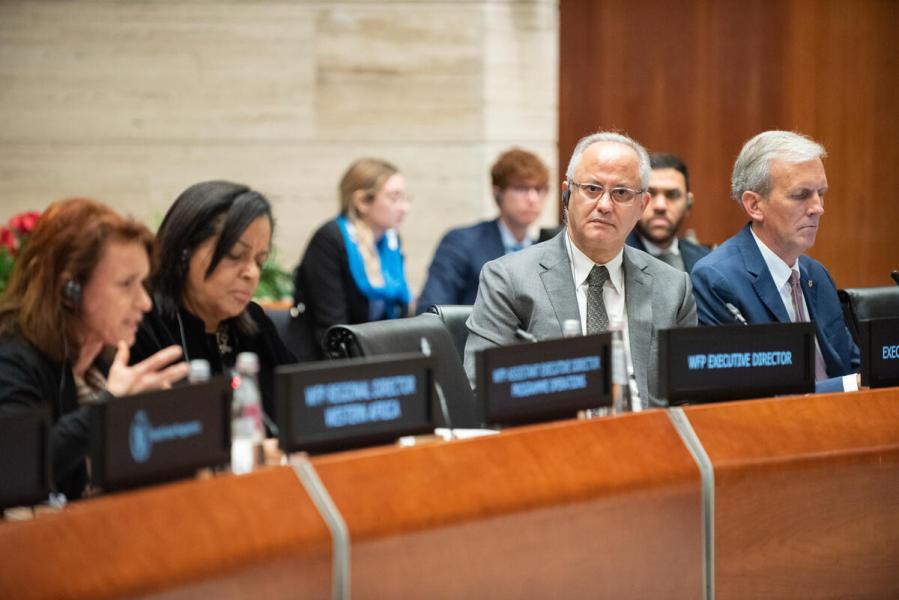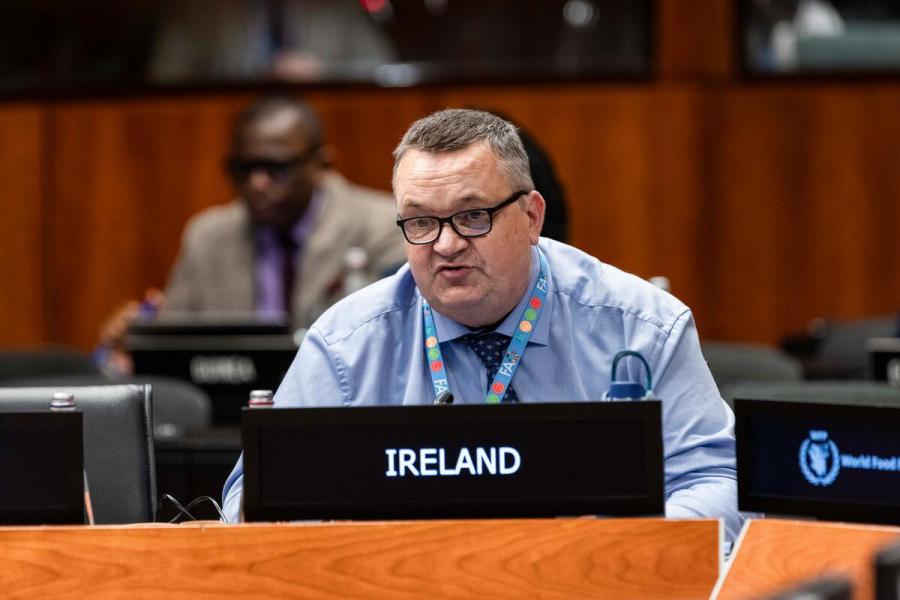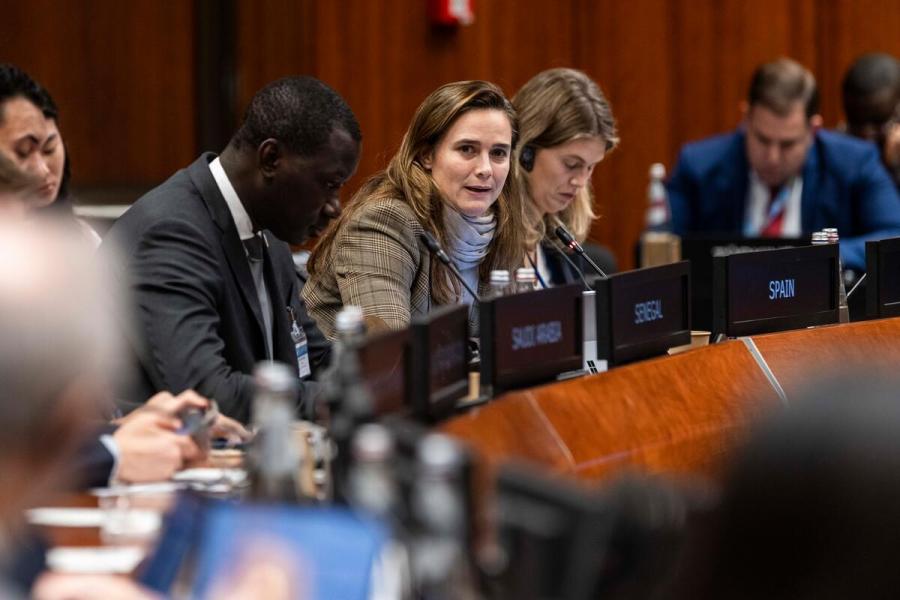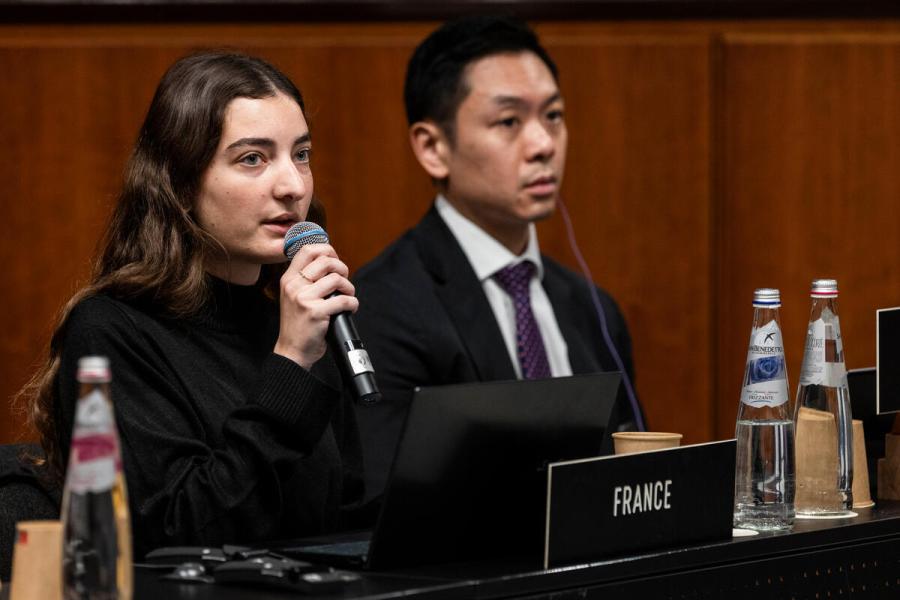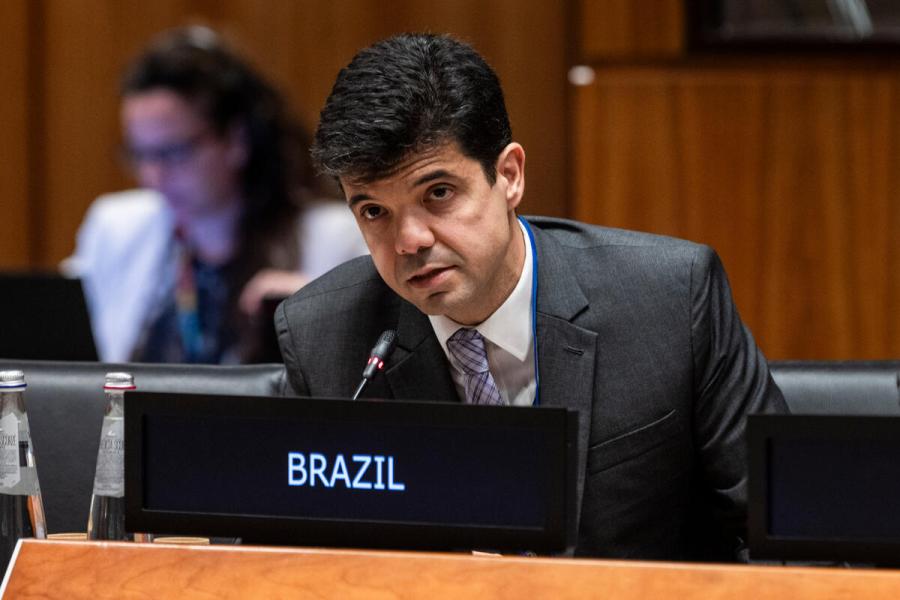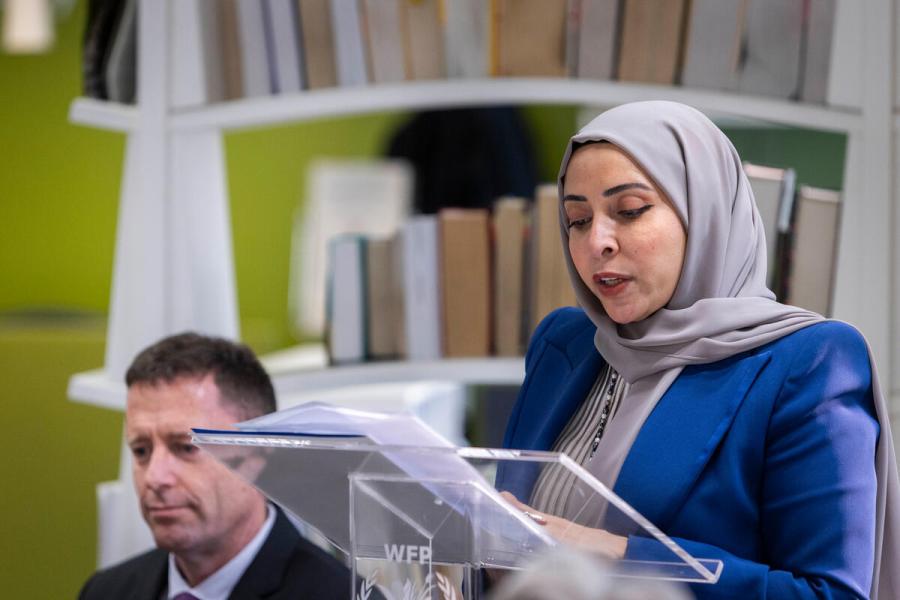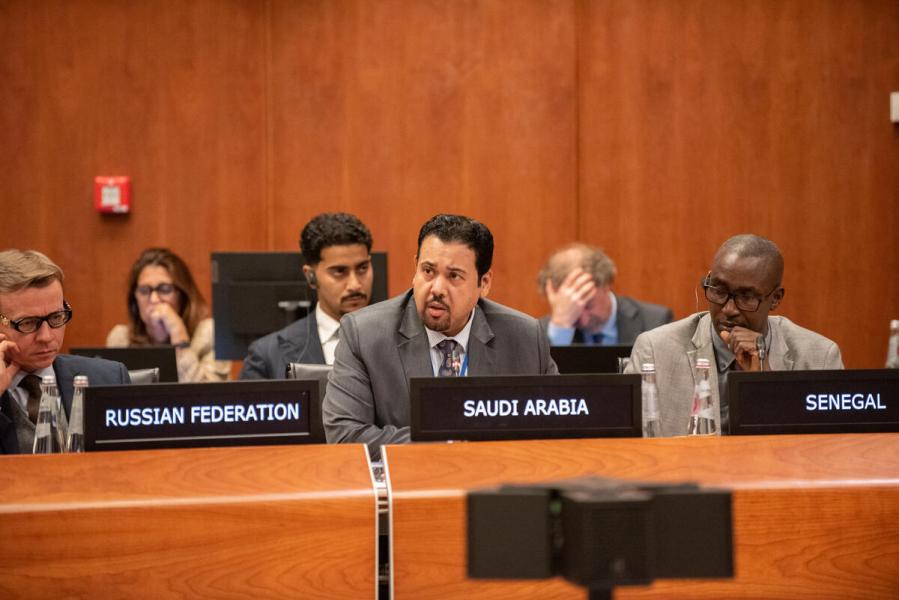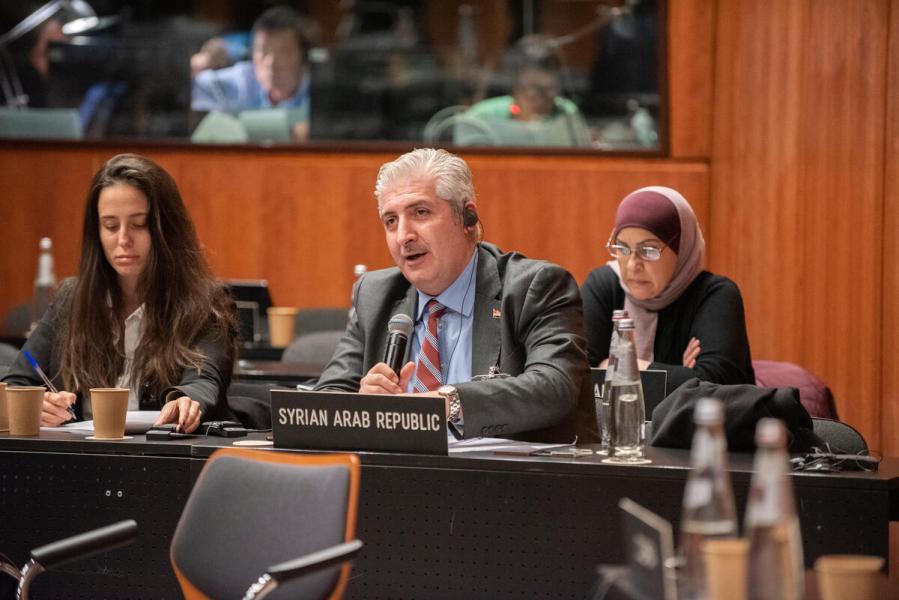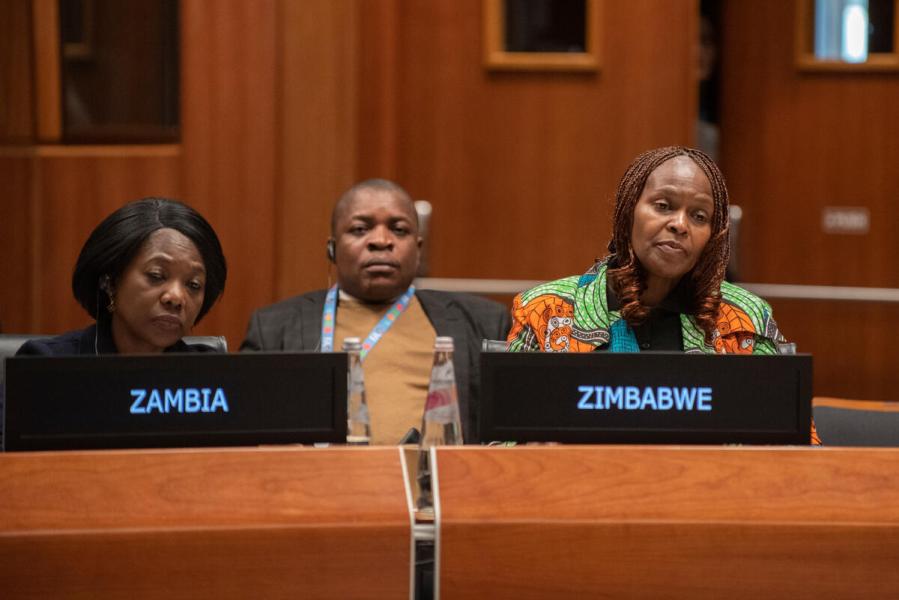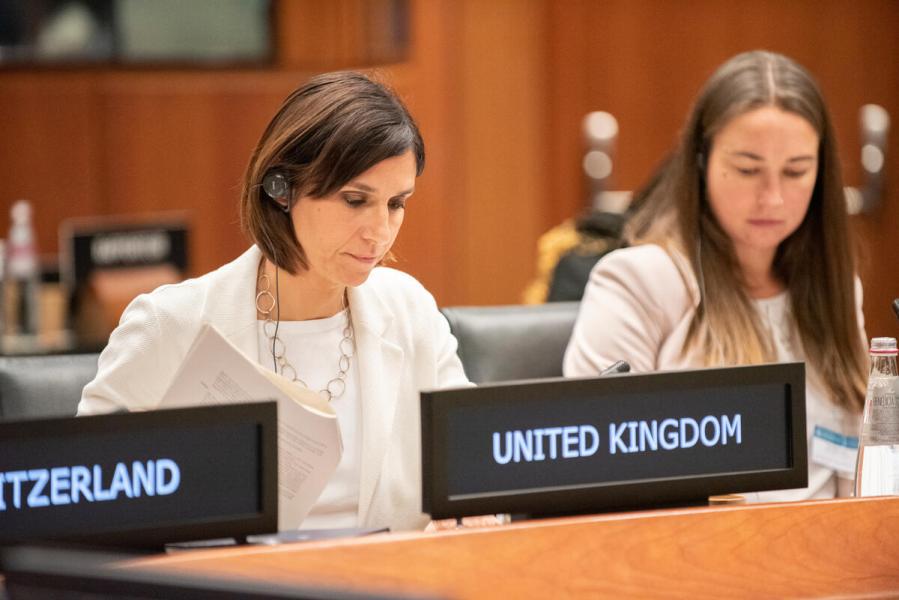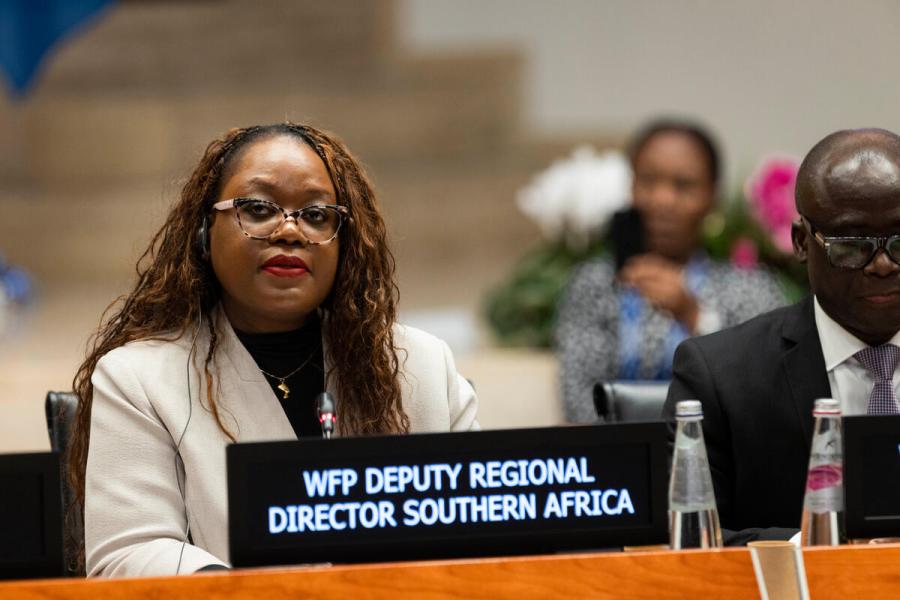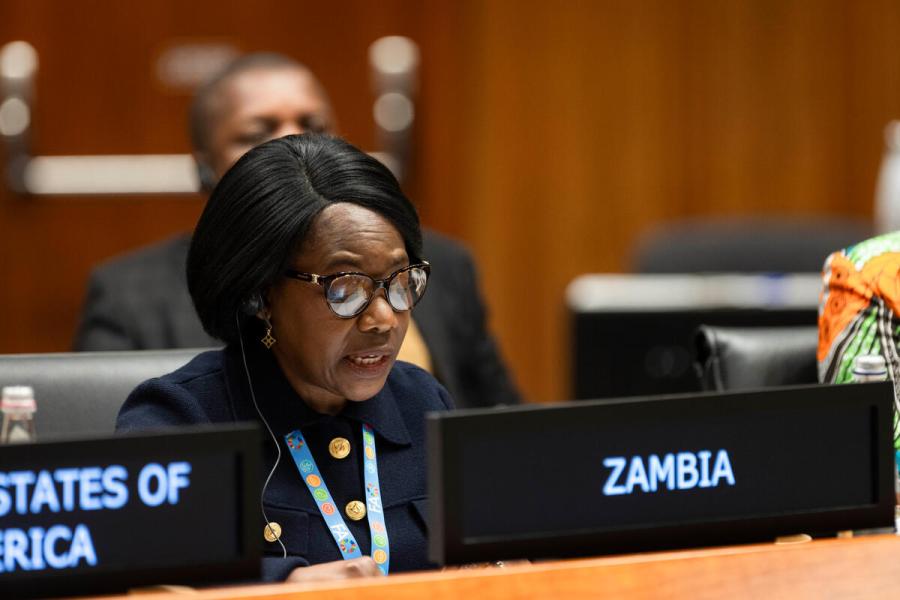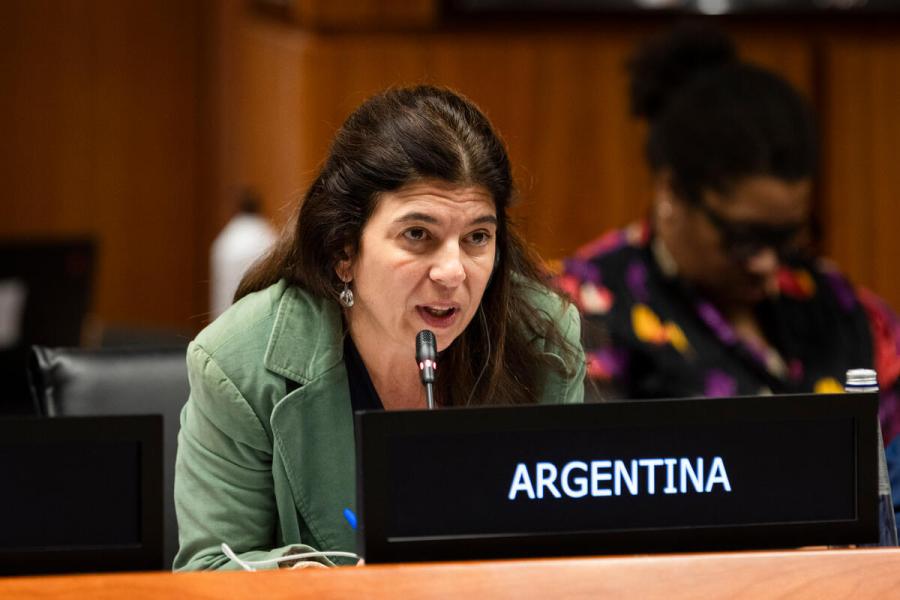From 18 to 21 November, the World Food Programme hosted the 2024 Second Regular Session of its Executive Board. Over the four-day session, the Board membership examined 21 items for approval or consideration. In addition, 7 items were submitted for information.
In a world where complex crises are compounding existing global hunger challenges, common threads running across the discussions were the need for enhanced duty of care to protect humanitarian workers around the world, and demand for increased accountability and efficiency.
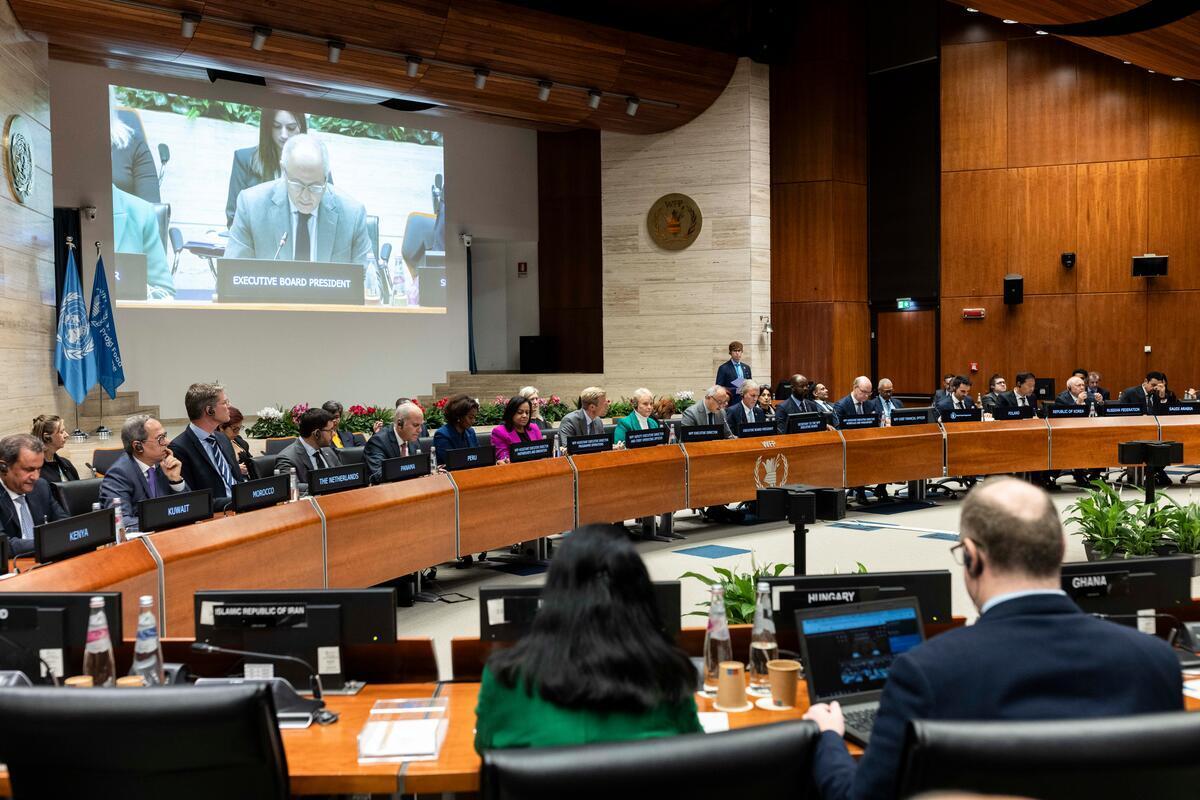
Opening of the Executive Board proceedings by H.E. Mr. Youssef Balla, Ambassador and Permanent Representative of the Kingdom of Morocco and President of the WFP Executive Board. Photo: WFP/Matteo Minnella
In her opening remarks, the Executive Director Cindy McCain briefed the Board on her participation in international high-level events including the G20, G7 and the UN General Assembly. She shared highlights of her engagement with political leaders and partners from governments, the private sector and non-governmental organizations (NGOs). These stakeholders have expressed confidence in WFP’s ability to deliver on its mission to end hunger and reduce food insecurity thanks to the dedication of its committed staff across the globe.
The ED updated the membership on her recent field visits including on her mission to the Caribbean after the devastation of Hurricane Beryl. The ED reflected on her visits to conflict-affected Sudan and Nigeria, as well as Jordan, Lebanon and the State of Palestine, which are facing an unfolding humanitarian catastrophe with potential regional impact.
ED McCain pointed out the current increasingly challenging operational conditions in conflict zones and complex environments. The ED emphasized that, while the WFP global team risks their safety to serve others, humanitarians are not and should never be a target. In this regard, ED McCain announced the introduction of measures to integrate duty of care into all WFP corporate policies and decision-making processes by enhancing risk assessment efforts and strengthening cross-functional collaboration.
ED McCain reiterated three priorities for WFP to drive progress on its agenda: expanding and diversifying its funding base, including by mobilizing more resources from the private sector and international financial institutions; further increasing WFP's efficiency and effectiveness, targeting resources where they will deliver the greatest impact; and scaling up partnerships and innovation to design and deliver more effective hunger solutions.
On the organizational realignment exercise, ED McCain conveyed that WFP would adopt a “one integrated global headquarters model” aimed at fully empowering country offices and enhancing their efficiency while reducing fragmentation and bureaucracy and building up clarity over roles and responsibilities. This model will consist of integrating the Regional Bureaus into global Headquarters, consolidating global services through a strengthened network of hubs, and clarifying delegated powers and authorities. The same focus on efficiency underpins the 2025 to 2027 Management Plan, which reflects WFP’s commitment to maximizing resources.
On the funding landscape, ED McCain reported that even if the organization is forecasted to reach USD 10 billion in 2024, projections for 2025 reveal persisting challenges. The ED placed emphasis on WFP’s efforts to mobilize funds and explore new financial sources. She urged governments to embrace innovative financing, for example, through debt swaps that were included in the G7 final communiqué as a potential means to incentivize productive investments in support of long-term economic growth while creating the fiscal space that ensure affordability for governments.
The ED announced the extension of her role as the Inter-Agency Standing Committee's Champion for Protection from Sexual Exploitation, Abuse and Harassment (PSEAH) for another year throughout 2025. She added that, as part of the WFP’s comprehensive action plan for PSEAH, the organization has appointed a new director, Isabella Castrogiovanni, who has deep expertise on these matters.
Speaking about operations, the ED put the spotlight on major crises in Sudan and in the Middle East.
In Sudan, 25 million people were acutely insecure and one million were on the brink of starvation. The WFP team continues to face access constraints that undermine their ability to deliver life-saving assistance at the scale needed. In the Middle East, the escalating conflict is driving mass displacement and causing widespread hunger. In Lebanon, WFP has supported 400,000 people with in-kind food distributions and reached a further 800,000 with cash-based transfers through government programmes. In addition, over 500,000 people have fled from Lebanon into Syria, adding further pressure in a country where three million people were already facing severe food insecurity.
On Gaza, the ED cited the recent IPC alert that warned of imminent famine in the north where the number of assisted people had fallen substantially over the past two months due to continued restrictions and obstacles that posed severe risks to WFP teams.
Finally, the ED made an appeal to the membership, calling for their continued support for funding WFP’s vital work and urging for political solutions to conflicts that are causing hunger around the world today.
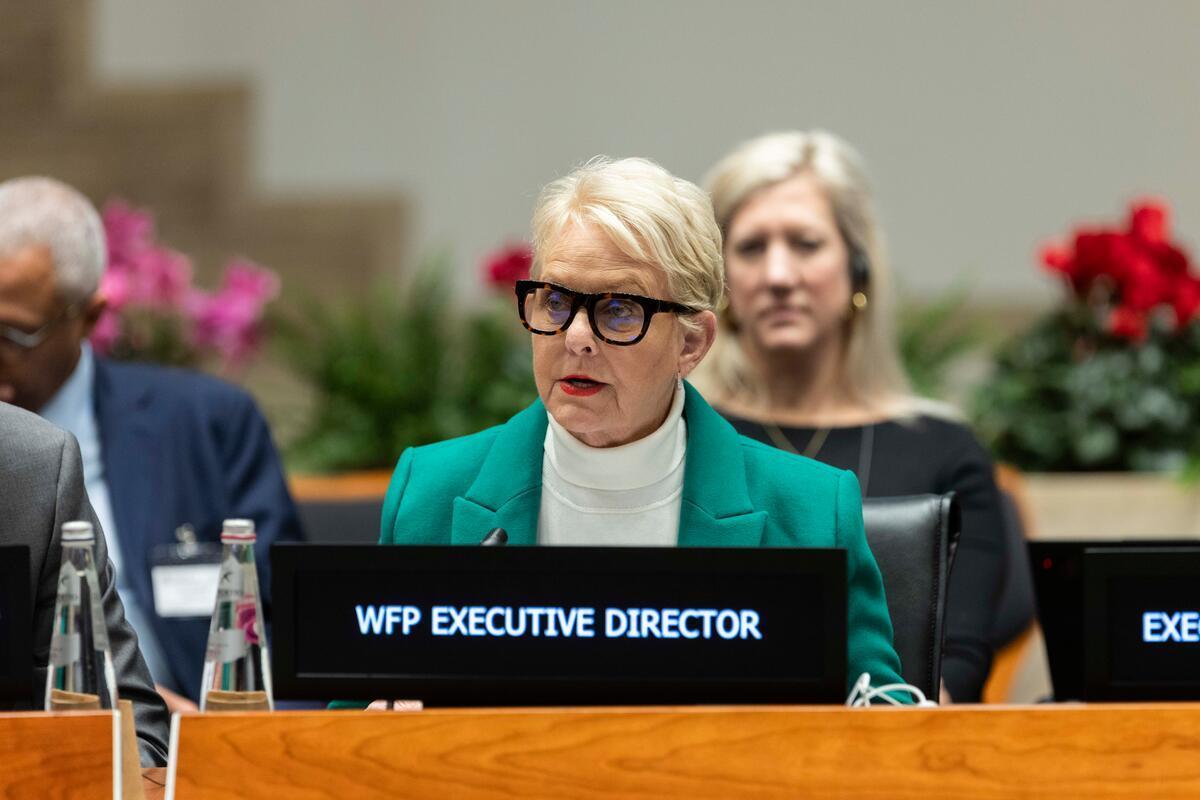
Opening remarks by Cindy McCain, WFP Executive Director. Photo: WFP/Matteo Minnella
The WFP Executive Board approved the WFP management plan (2025–2027) along with a 2025 programme support and administrative appropriation of USD 480 million.
The Board supported WFP’s strategic approach to navigating an increasingly challenging global operational and funding environment, including by placing a renewed focus on organizational culture and change management to empower country offices and ensure high standards of delivery. WFP will step up its efforts to protecting, growing and diversifying its resource base, reducing needs in partnership with others and working more efficiently and effectively to maximize the resources available for its frontline operations.
Resilience policy update: this policy update guides WFP’s resilience-strengthening efforts by defining priorities and approaches to achieve three main outcomes: empowering women, girls and marginalized populations, improving livelihoods, and strengthening local and national capacities. It presents the change pathways that will underpin WFP resilience programmes and the enablers that will support their successful implementation. The update was carried out in coordination with the update of the climate change policy, recognizing that climate action and resilience strengthening are mutually reinforcing.
Climate change policy update: the updated policy clarifies WFP’s contribution to national and international action on climate change, including support for climate change mitigation, climate change adaptation, disaster risk reduction, and responses to loss and damage.
School meals policy update: this policy update introduces the School Meals Coalition as the driving force in school meals and institutionalizes WFP’s global leadership role in this area. It also marks a shift from a WFP-focused approach to a new modus operandi that puts governments at the center with WFP enabling them to design efficient and effective national programmes.
This policy highlights improvements in the way WFP delivers school meal programmes, ensuring better integration, coherence and quality of programme delivery, a stronger focus on the impact of diet and lifestyle on well-being and nutrition outcomes, increased capacity to act in humanitarian and fragile settings, and a stronger approach to food systems transformation and climate action.
Operations: The Executive Board approved the new country strategic plans (CSPs) for Colombia (2025-2028), Namibia (2025-2029) and Senegal (2025-2029), and an interim CSP for Ukraine (2025-2027).
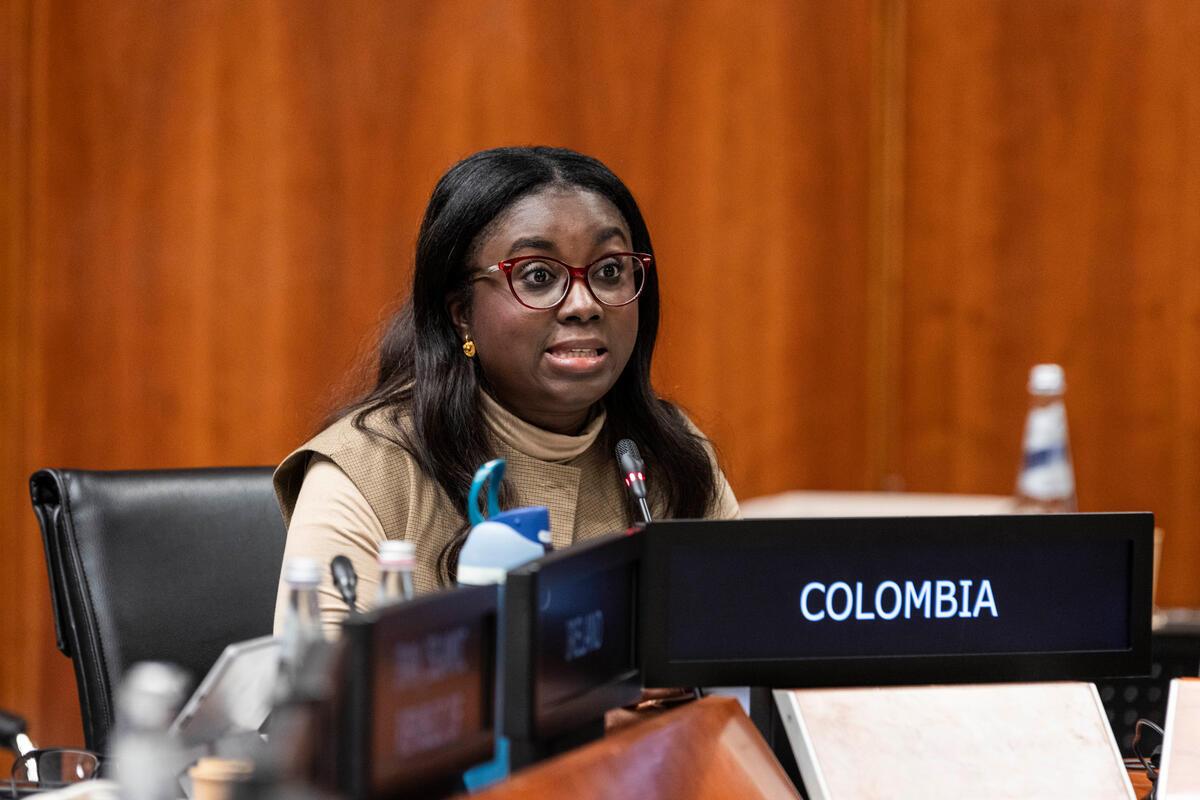
In the photo: intervention by H.E. Ms. Kandya Gisella Obezo Casseres, Colombia Vice Minister of Multilateral Affairs of the Ministry of Foreign Affairs.
Evaluation: The Board reviewed the Summary evaluation report on the mid-term evaluation of the WFP strategic plan (2022–2025) and its management response. The EB also examined the summary reports on the evaluation of CSPs for Colombia, Cuba, Mali, Syria and Rwanda, and the summary report on the evaluation of WFP’s emergency response to the prolonged crisis in the Sahel and other countries of Central Africa alongside their management responses. All evaluation reports are available here, under Agenda item 6.
Other business: The EB approved the Second interim report of the Executive Board working group on the governance review. This follows the first interim report which contained a first set of recommendations that were subsequently taken forward by the Secretariat upon the Board’s approval at its 2024 annual session. The EB has now endorsed further recommendations relating to WFP’s four governance frameworks: strategy, policy, oversight, accountability, as well as the workings of the Board and the Bureau, which are aimed at strengthening governance efficiency and enhancing the Board’s role in providing more strategic guidance and support to WFP.
Click here to review all the documentation and here to read all decisions and recommendations.
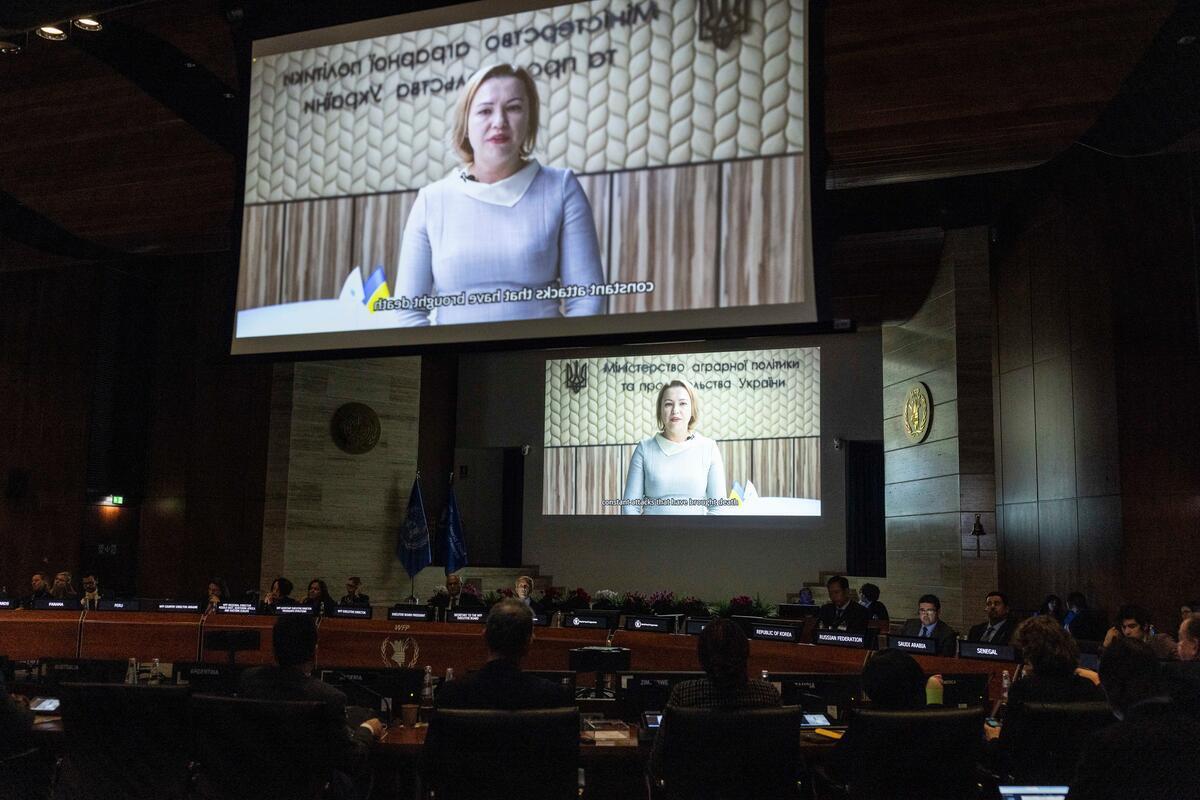
Video message from Oksana Osmachko, Deputy Minister of the Agrarian Policy of Ukraine. Photo: WFP/Matteo Minnella
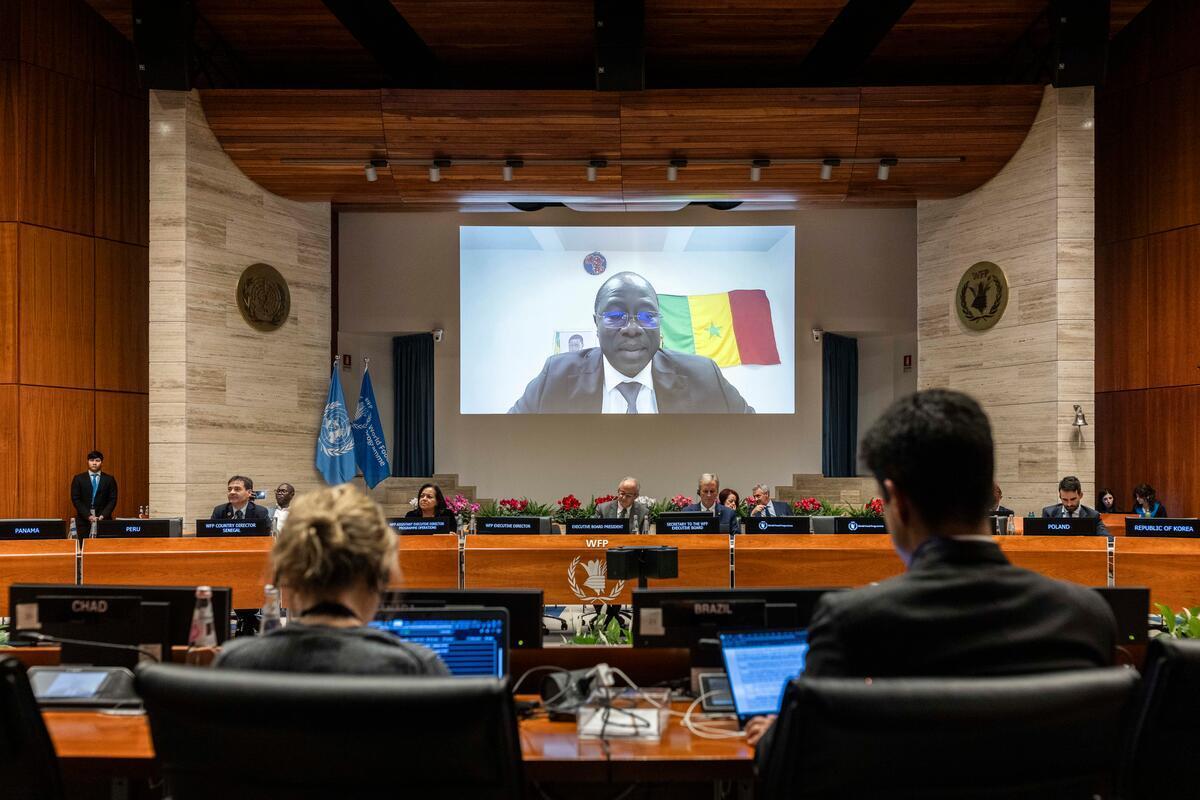
Intervention by H.E. Daouda Ngom, Minister of Environment and Ecological Transition of Senegal. Photo: WFP/Matteo Minnella
The exhibit “Engineering a Sustainable Future: Building the Pathway for Food Security” was launched on the morning of Tuesday, 19 November, in the Blue Foyer.
Ms. Rania Dagash-Kamara, Assistant Executive Director, Partnerships and Innovation Department, opened the exhibition by welcoming the permanent representatives and introducing its objectives.
Ms. Sara Adam, Director of the Management Services Division and Mr. Jean-Luc Kohler, Chief Engineer illustrated the critical role that infrastructure projects play in the fight against global hunger and to foster sustainable development. In WFP more than 200 in-house engineers and technicians work on infrastructure projects stationed in more than 45 countries worldwide. They are supported by a qualified and experienced team of specialist engineering professionals based at the WFP global headquarters. The exhibition showcased success stories and case studies from various countries and regions and highlighted the collaboration between the Engineering teams and other WFP areas such as Supply Chain and Programme in support of WFP operations.
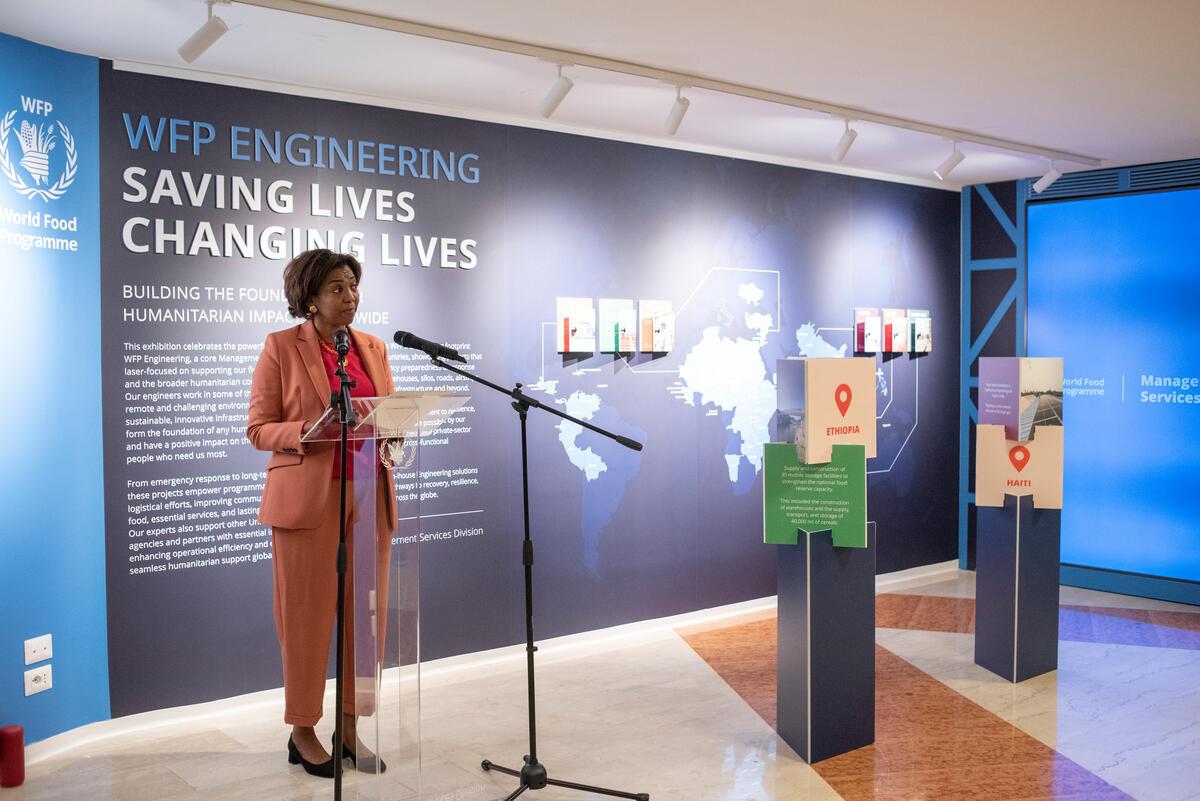
Exhibit "WFP Engineering: Building the foundation for humanitarian impact worldwide". In the photo: Ms. Rania Dagash-Kamara, WFP Assistant Executive Director. Photo: WFP/Daria Addabbo
On Wednesday, 20 November, the side event “Scaling Success, the Impact and Future of the School Meals Coalition” was held.
Ms. Valerie Guarnieri, Assistant Executive Director for Programme Operations, welcomed delegates and introduced a discussion on the impact of the School Meals Coalition which was launched at the Food Systems Summit in 2021.
Ms. Carmen Burbano, Director of the WFP’s School Meals and Social Protection Service moderated a dynamic round table panel composed of the Coalition’s members including permanent representatives from France, Finland, Kenya, United States and Brazil.
H.E. Ms. Céline Jurgensen, Ambassador and Permanent Representative of France, offered an overview of their mission and highlighted some of the key achievements obtained so far: in just three years, the Coalition membership has increased from 46 governments and 44 partners to 103 governments and over 130 partners. These partnerships have improved investment in school meals by USD 5 billion; the number of children benefiting from school meals worldwide has risen from 388 million in 2020 to 418 million; despite severe tightening of fiscal space, there has been a 15 percent increase of domestic budget allocation by low-income countries; and since the launch of the Coalition, 4 million direct jobs were created, most of them benefitting women.
This event was also an opportunity to share the outcomes of the Ministerial Task Force Meeting that took place in Nairobi on 29 October and showcase the Coalition’s priorities for 2025–2026. Ms. Tanja Gren, Permanent Representative of Finland, presented six milestones: first, making school meals a political and fiscal priority globally and expand access to sustainable finance; second, transitioning from commitments to action at country level; third, strengthening evidence for better decision making and more cost-efficient programmes; forth, measuring results and reporting on progress of the Coalition to assess impact; fifth, empowering cities and municipalities to make progress; and sixth, prioritizing high-level participation in the next Global Meeting of the Coalition in Brasilia in 2025 and supporting additional gatherings to uphold advocacy.
H.E. Mr. Fredrick Lusambili Matwang'a, Ambassador and Permanent Representative of Kenya presented Kenya’s operational plan for the school meals programme scale up and the National School Meals Coalition.
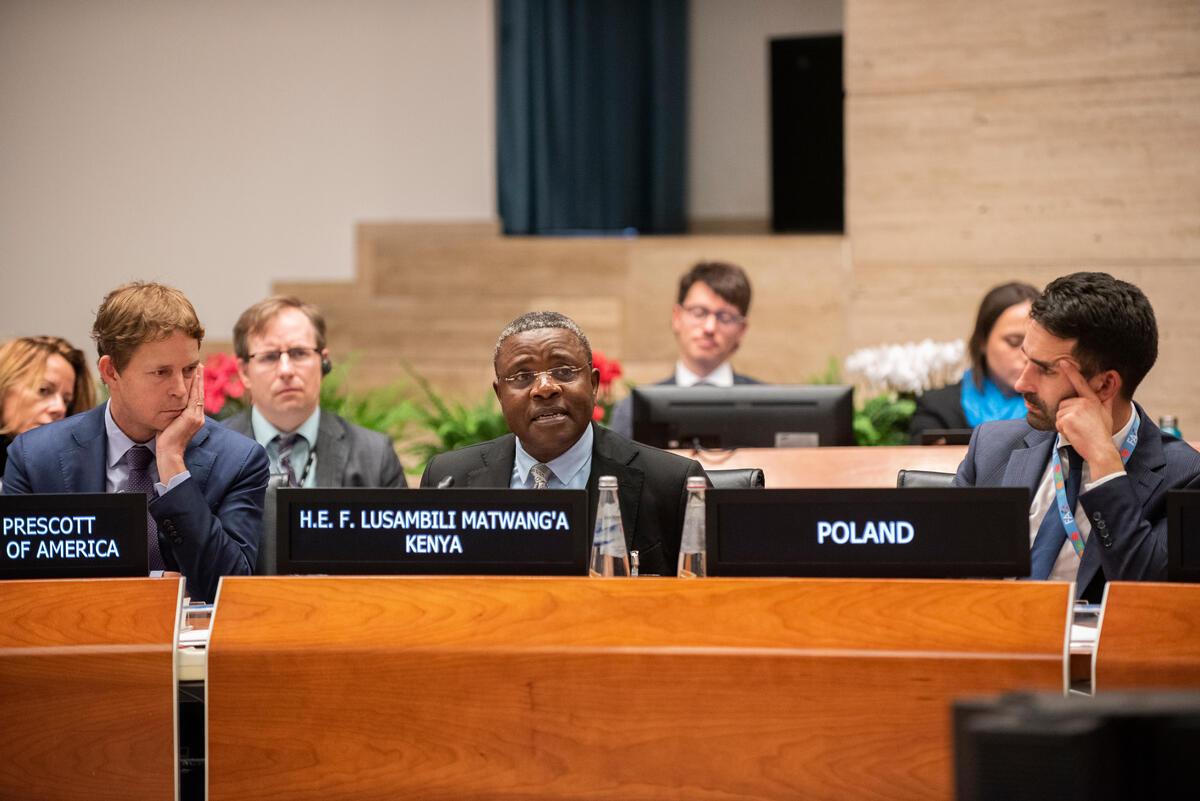
Side event "The School Meals Coalition: status and what’s next". Intervention by H.E. Mr. Fredrick Matwang’a, Ambassador and Permanent Representative of Kenya. Photo: WFP/Daria Addabbo
H.E. Mr. Jeffrey Prescott, Ambassador and Permanent Representative of United States touched on the new School Meals Impact Accelerator initiative that was discussed and endorsed by the Task Force of the Coalition. This initiative consists of a basket of funding that will be available through philanthropic organizations and other partners to boost the provision of technical assistance to countries that are making commitments through the Coalition.
Finally, H.E. Ms. Carla Barroso Carneiro, Ambassador and Permanent Representative of Brazil, spoke about the newly launched Global Alliance against hunger and poverty that was established under the framework of the Brazilian presidency of the G20. Ambassador Barroso Carneiro explained that School Meals are a core pillar of the Alliance strategy to end childhood hunger and improve access to education globally, and that the objective is to double the number of children that are now benefiting from this programme in low-income countries by reaching 150 million children by 2030.

